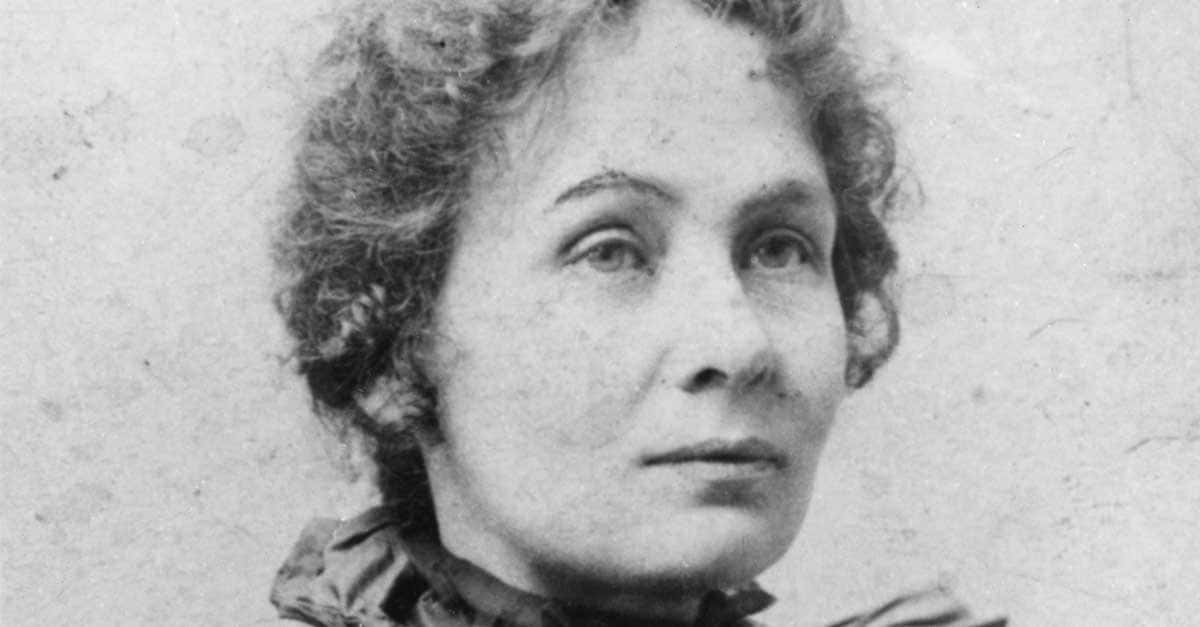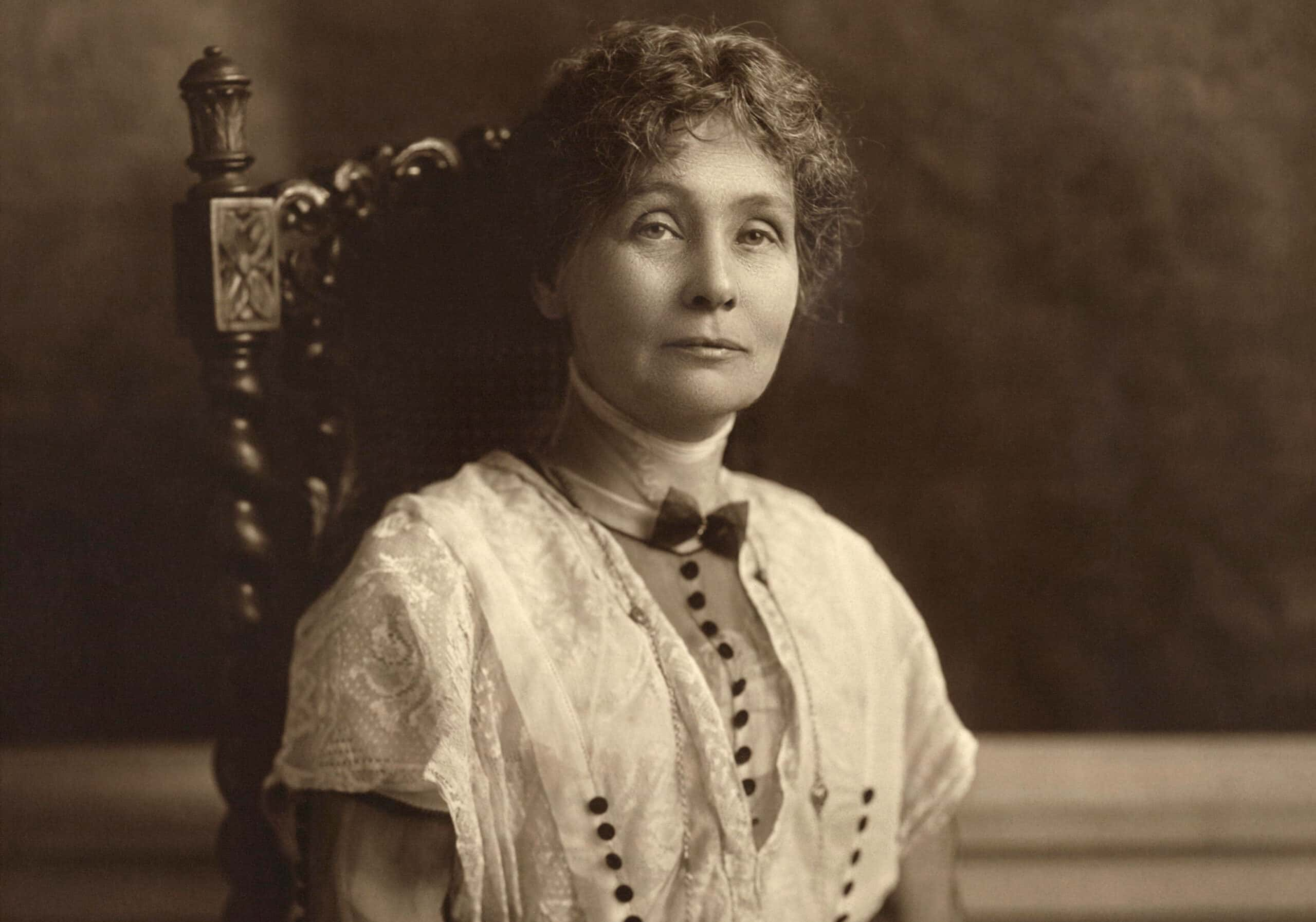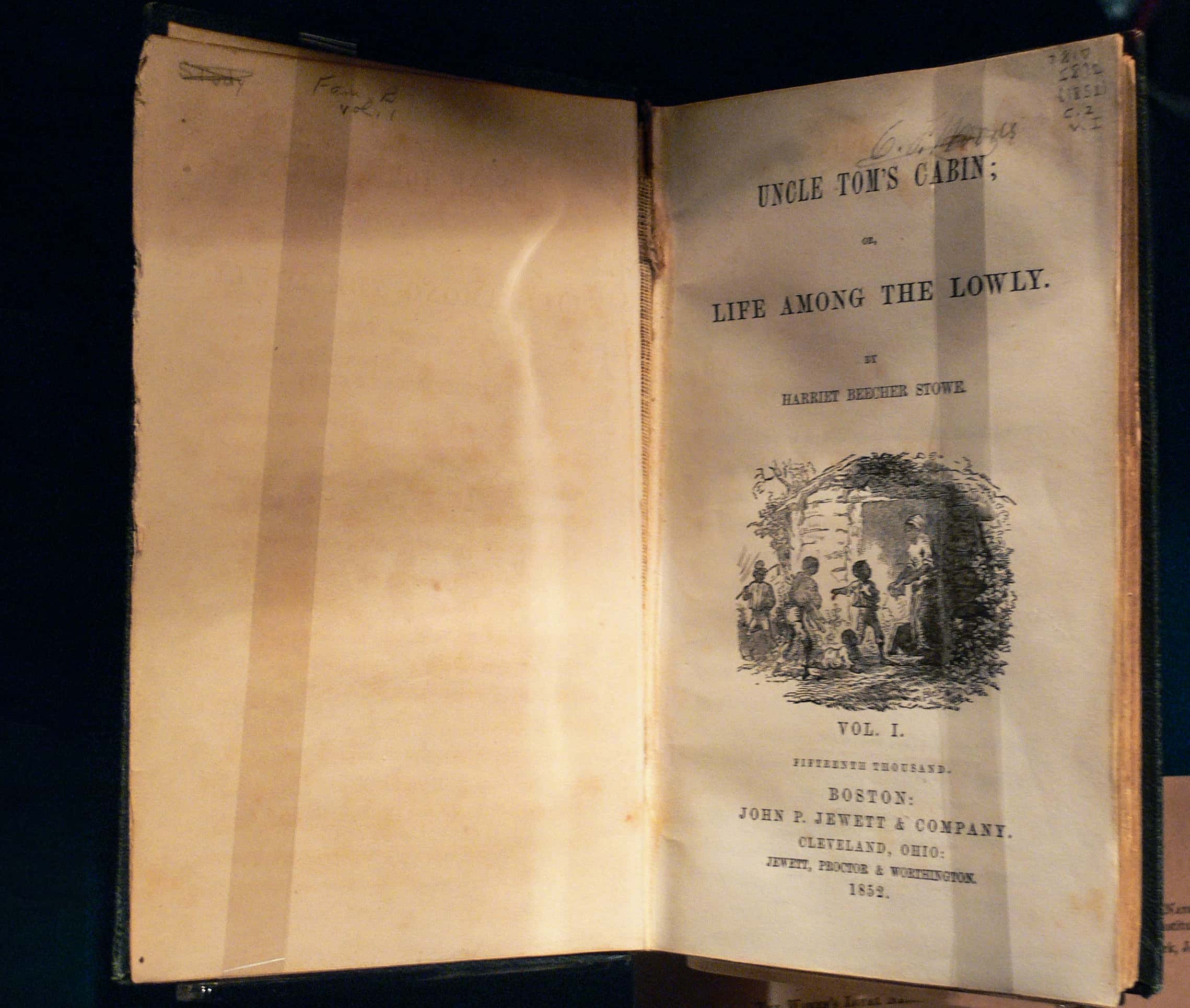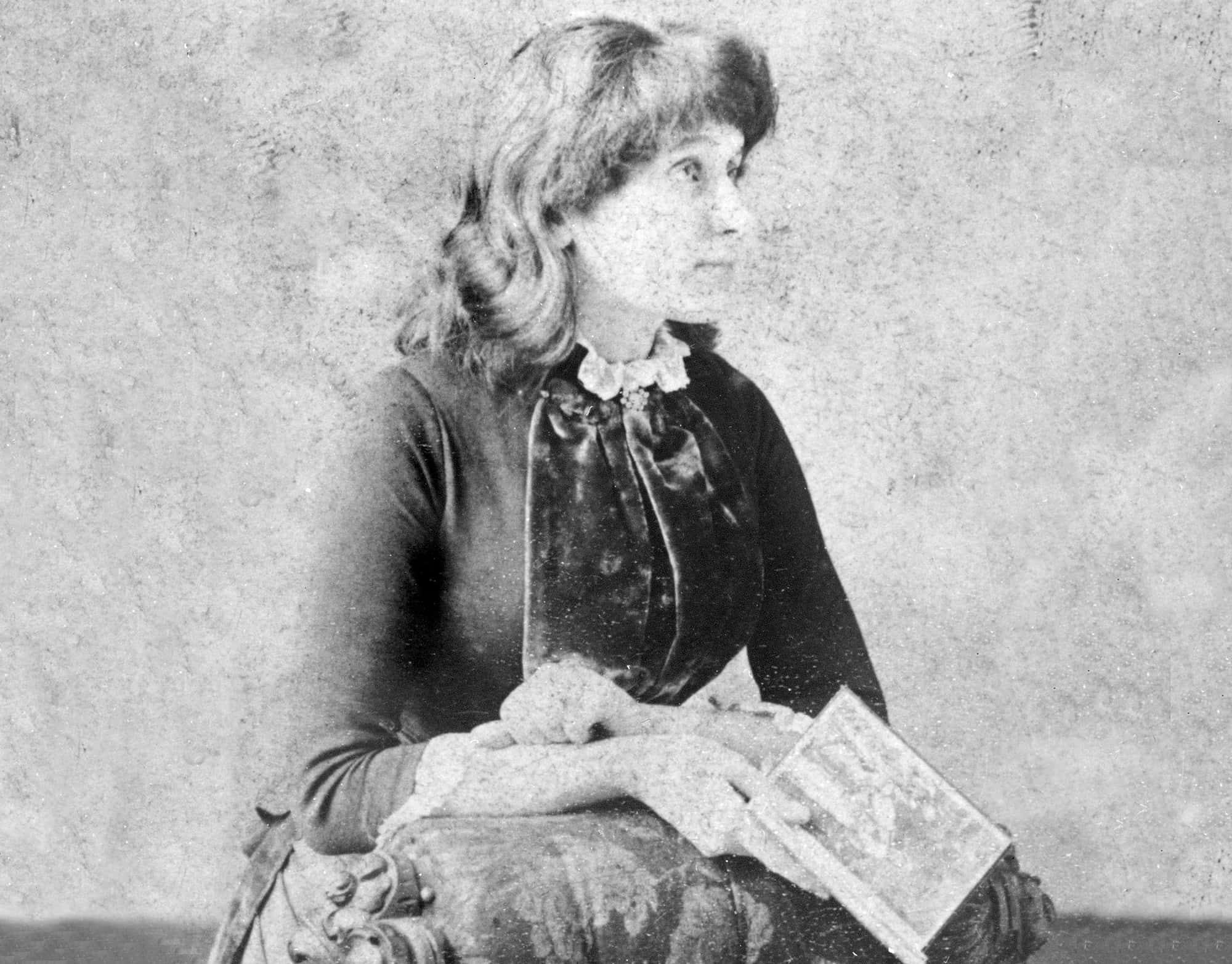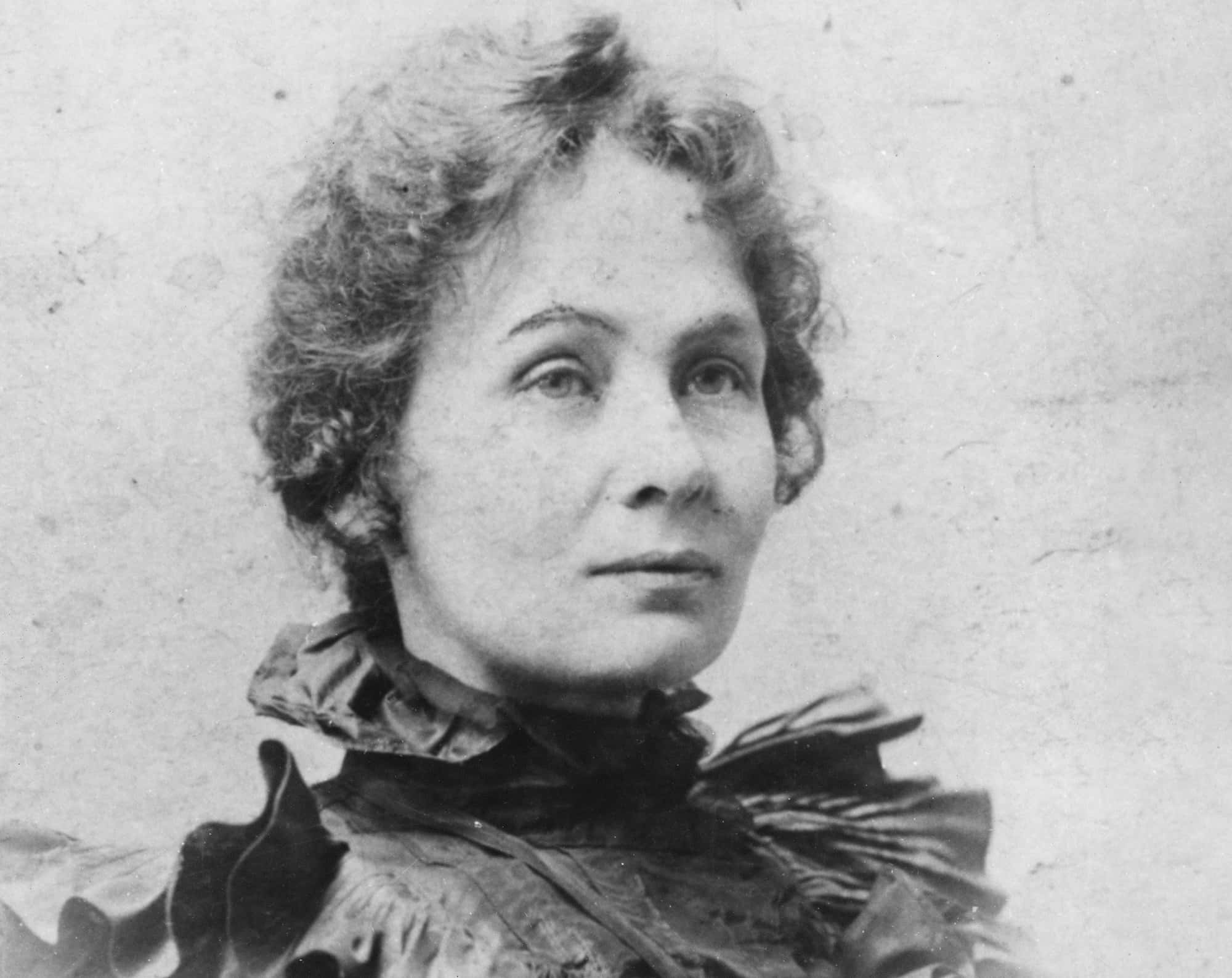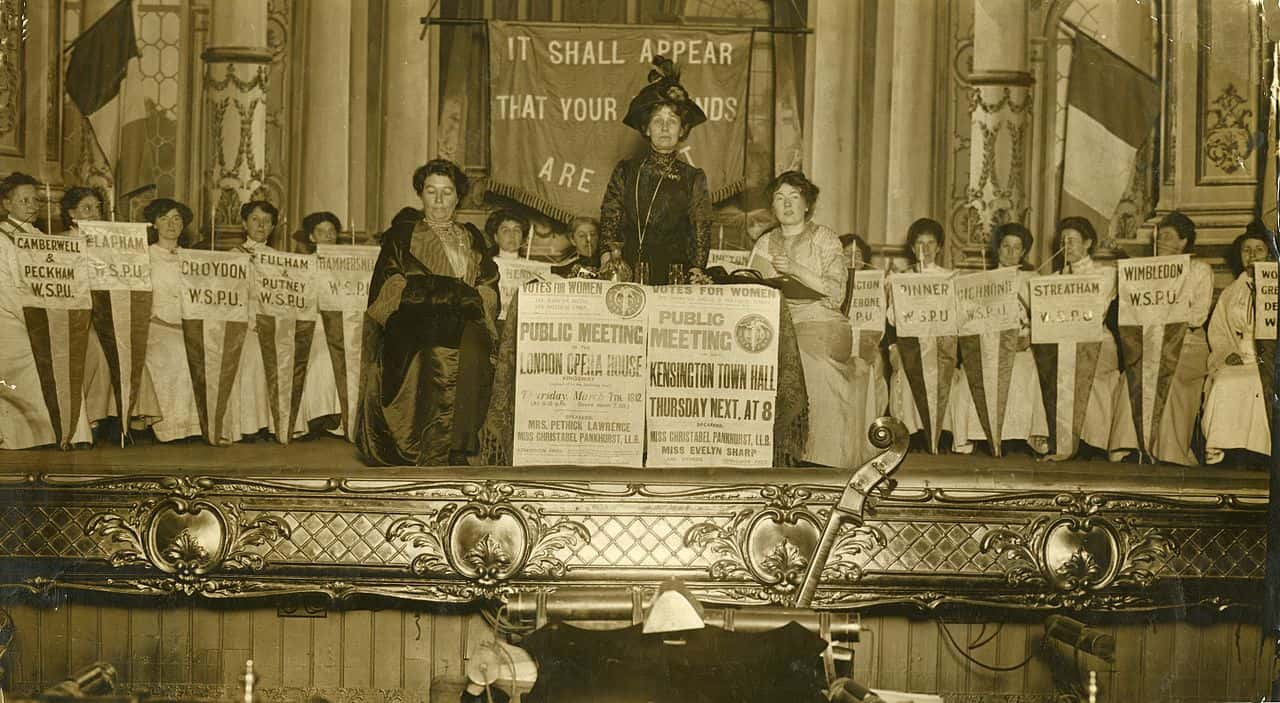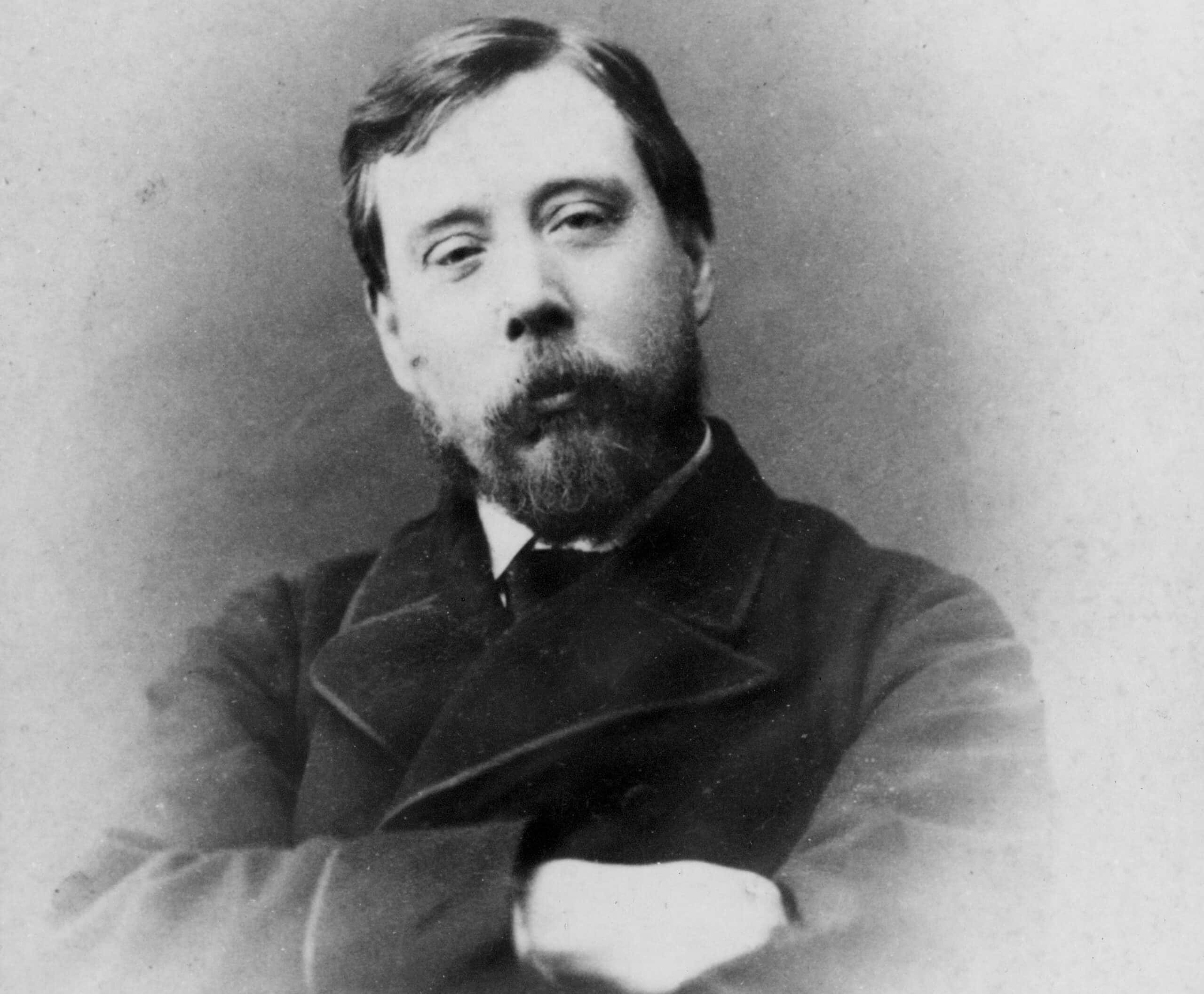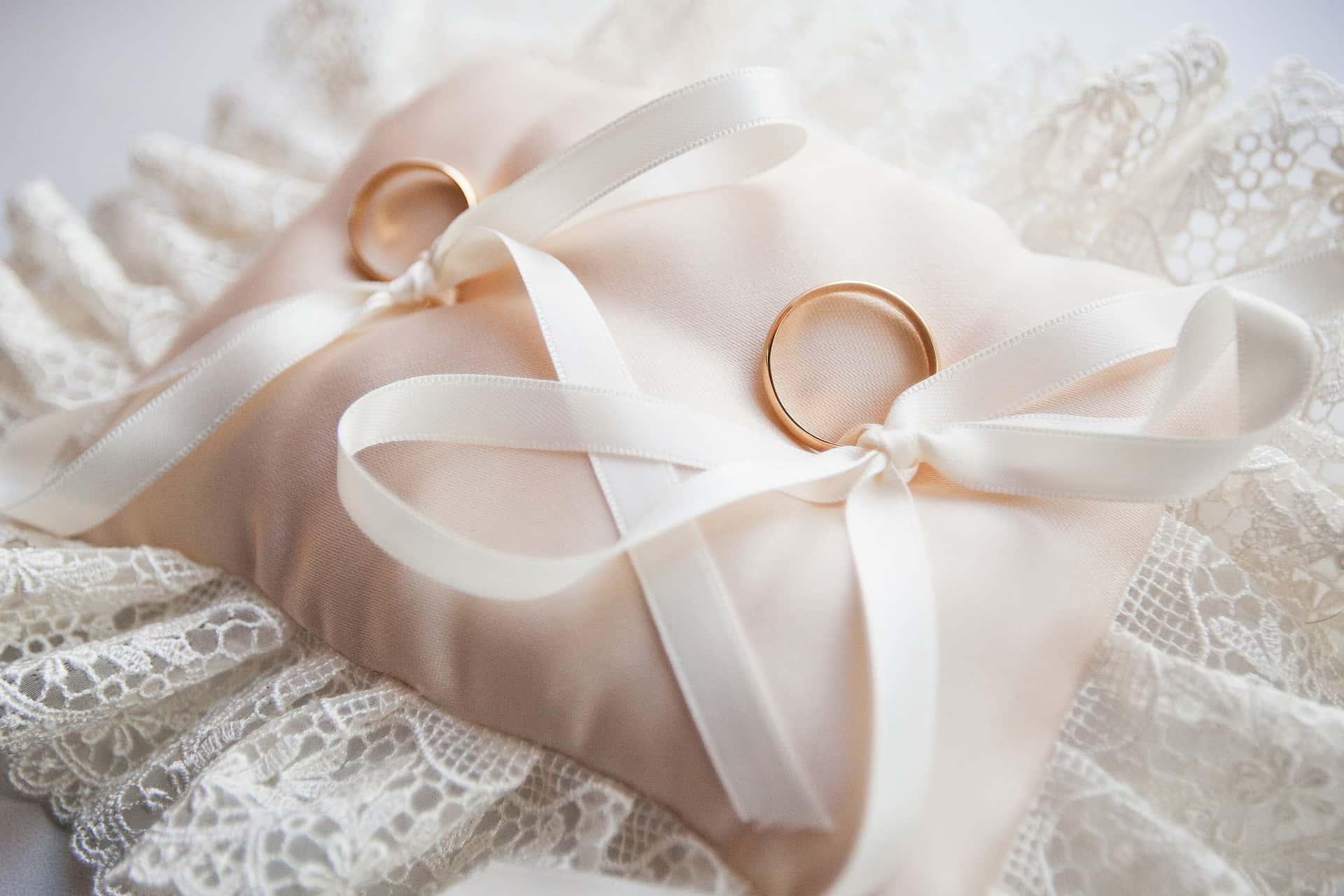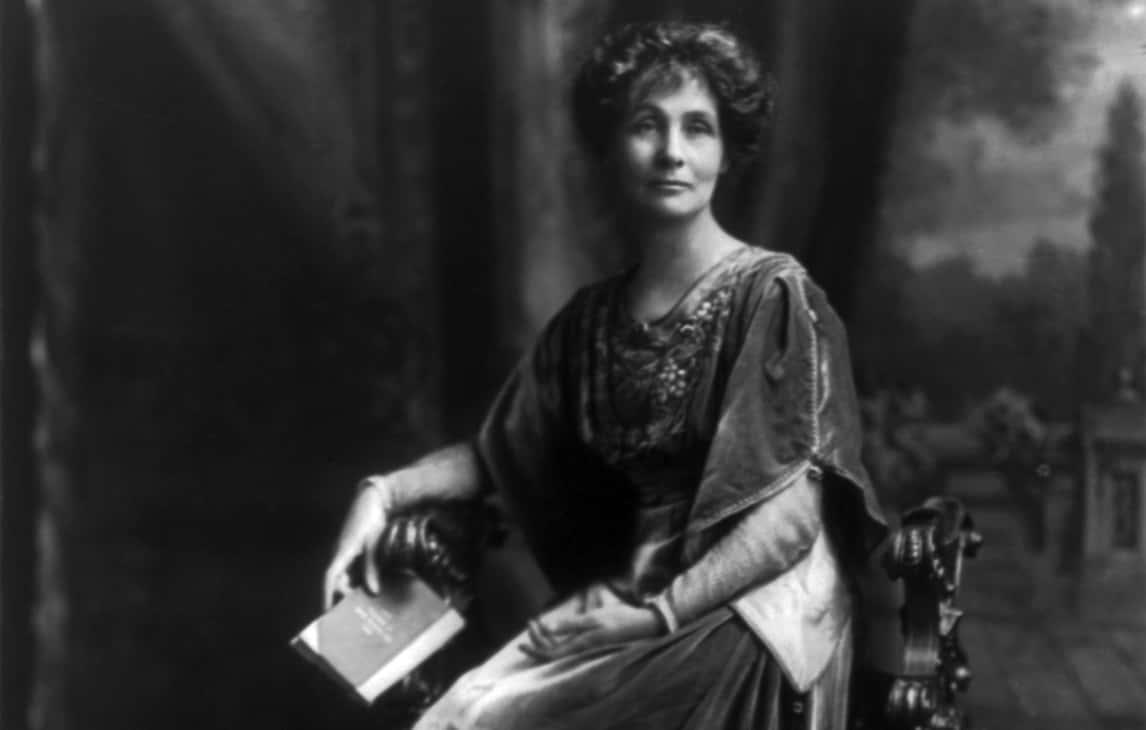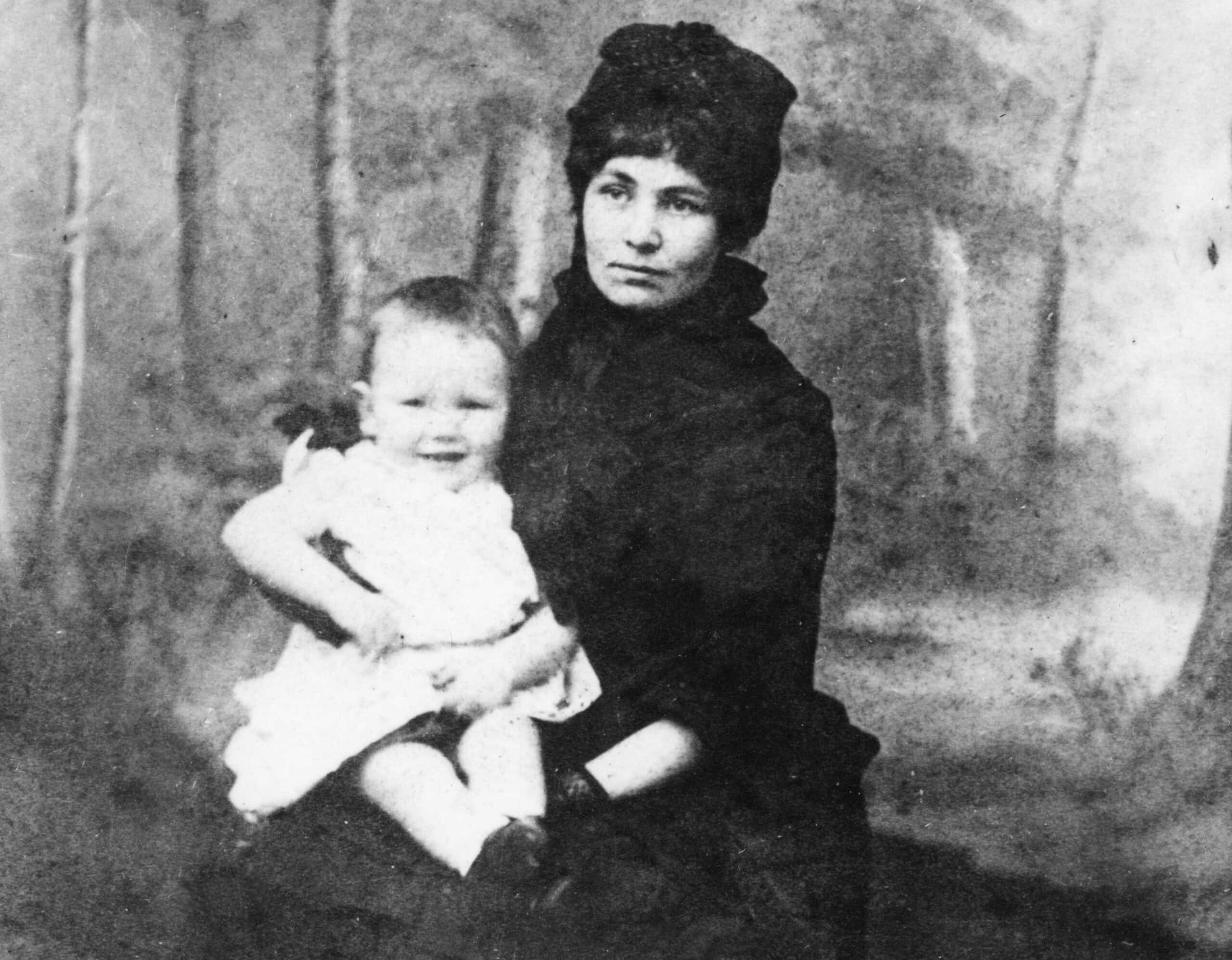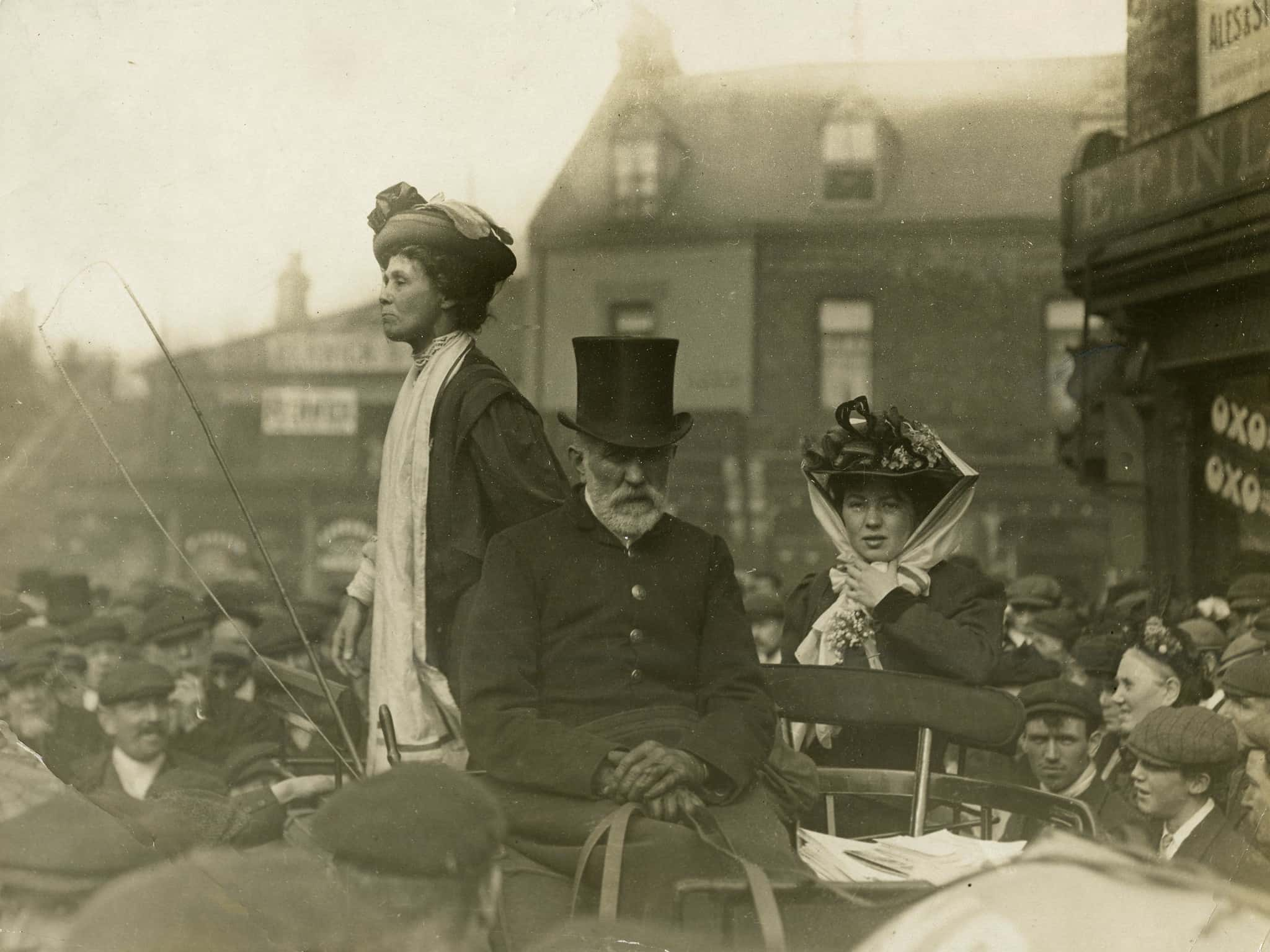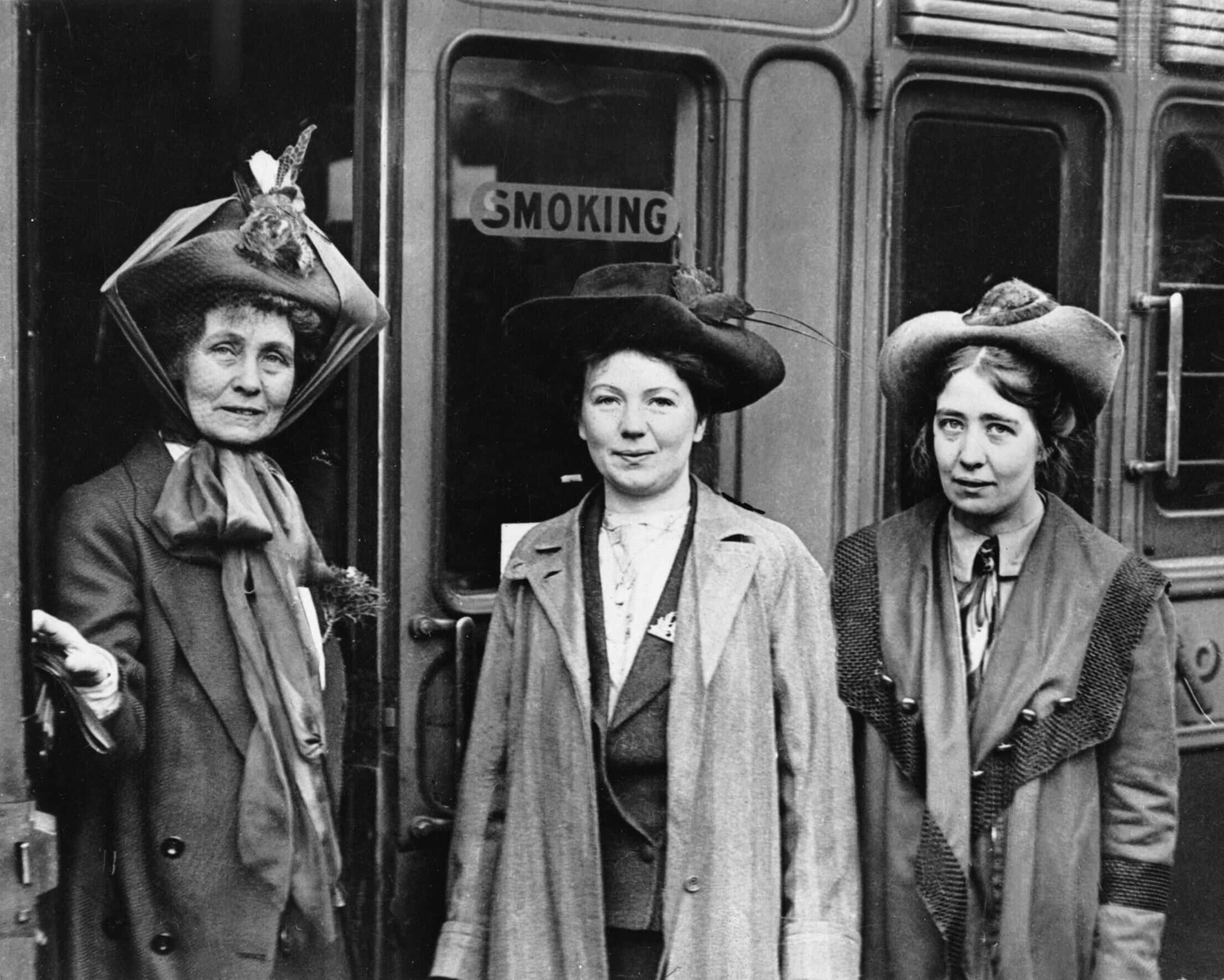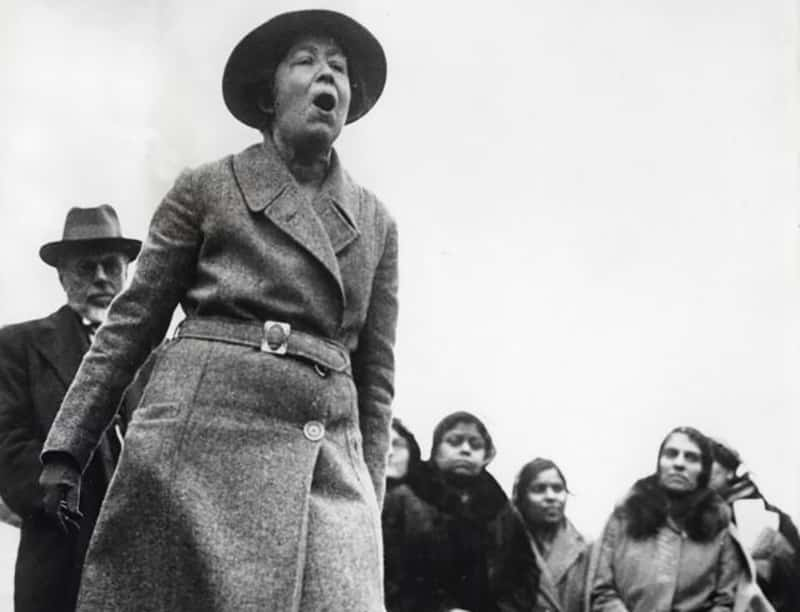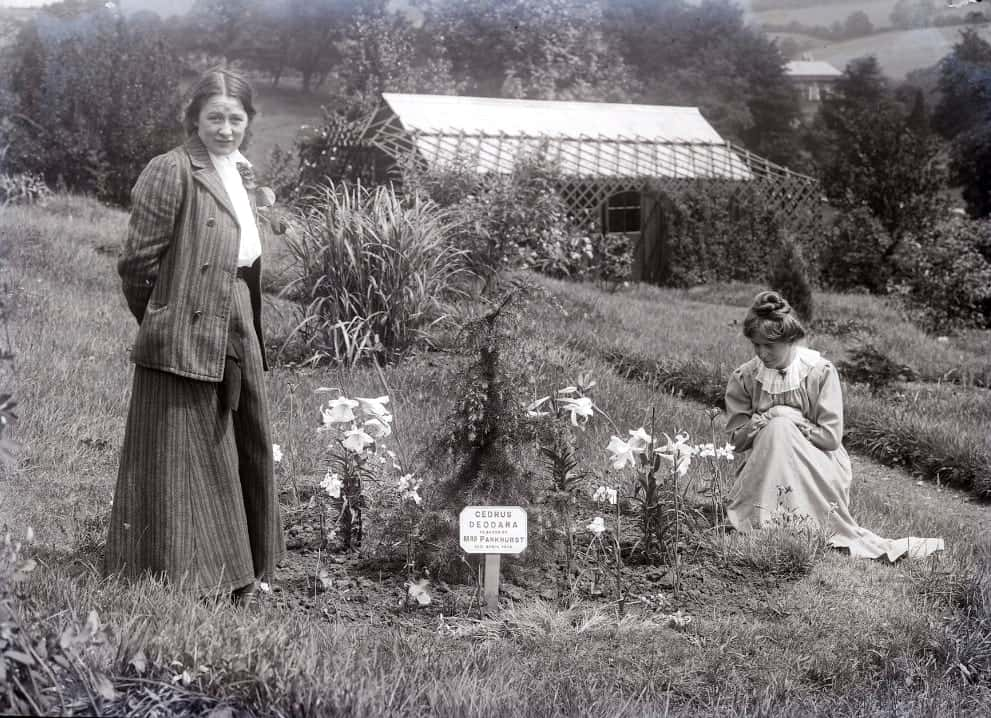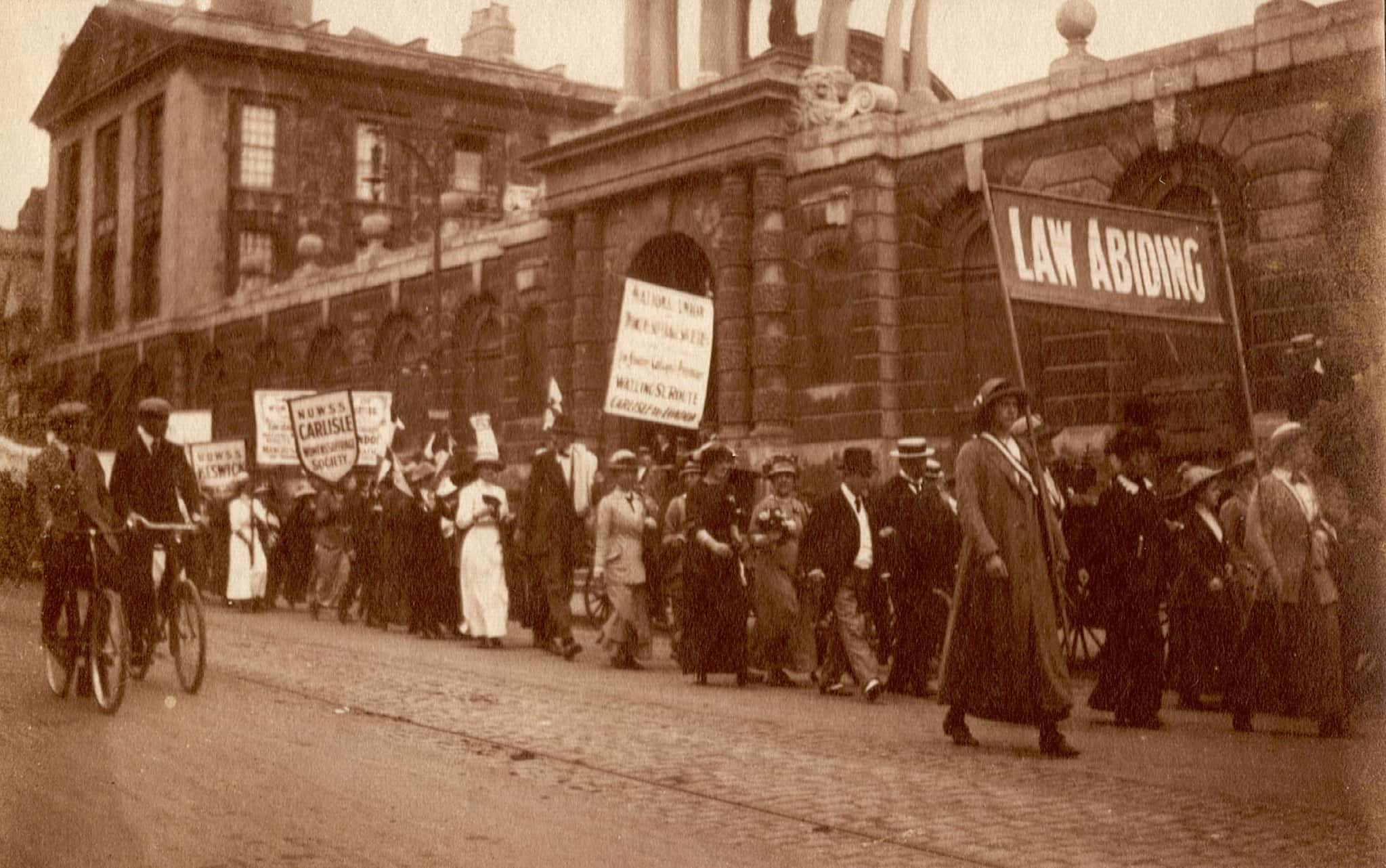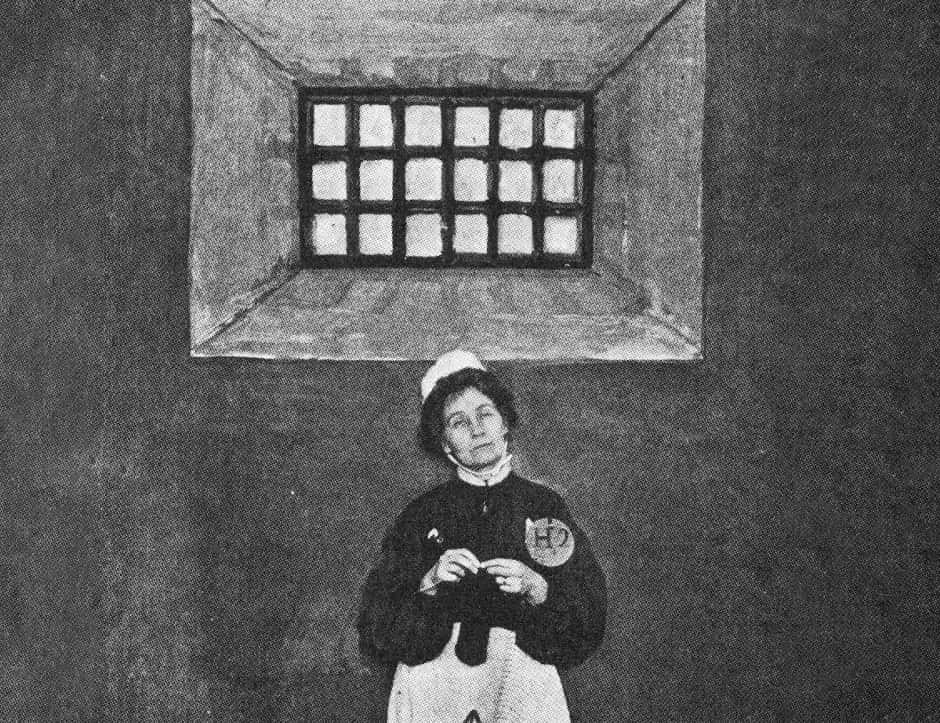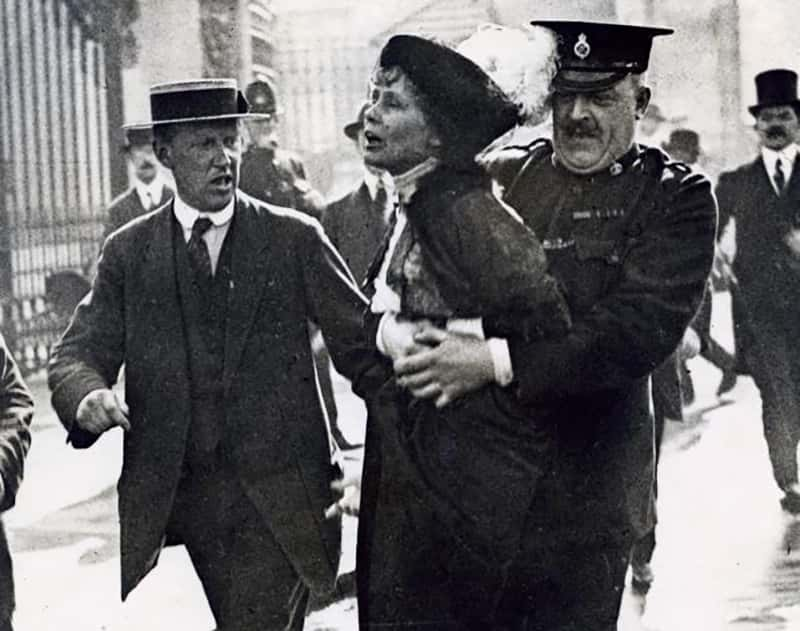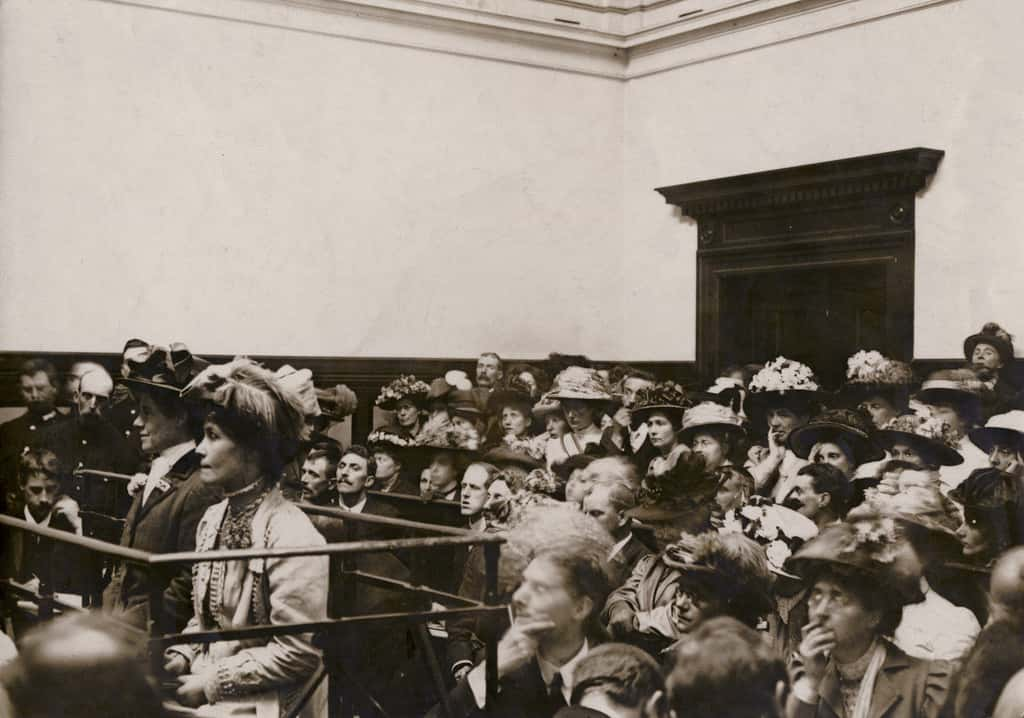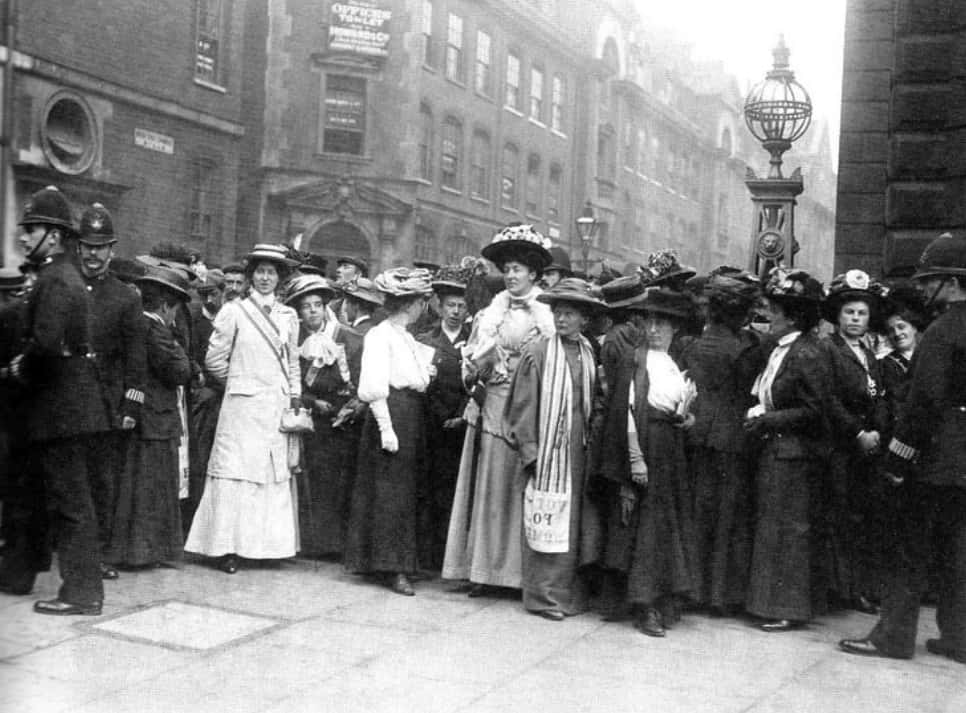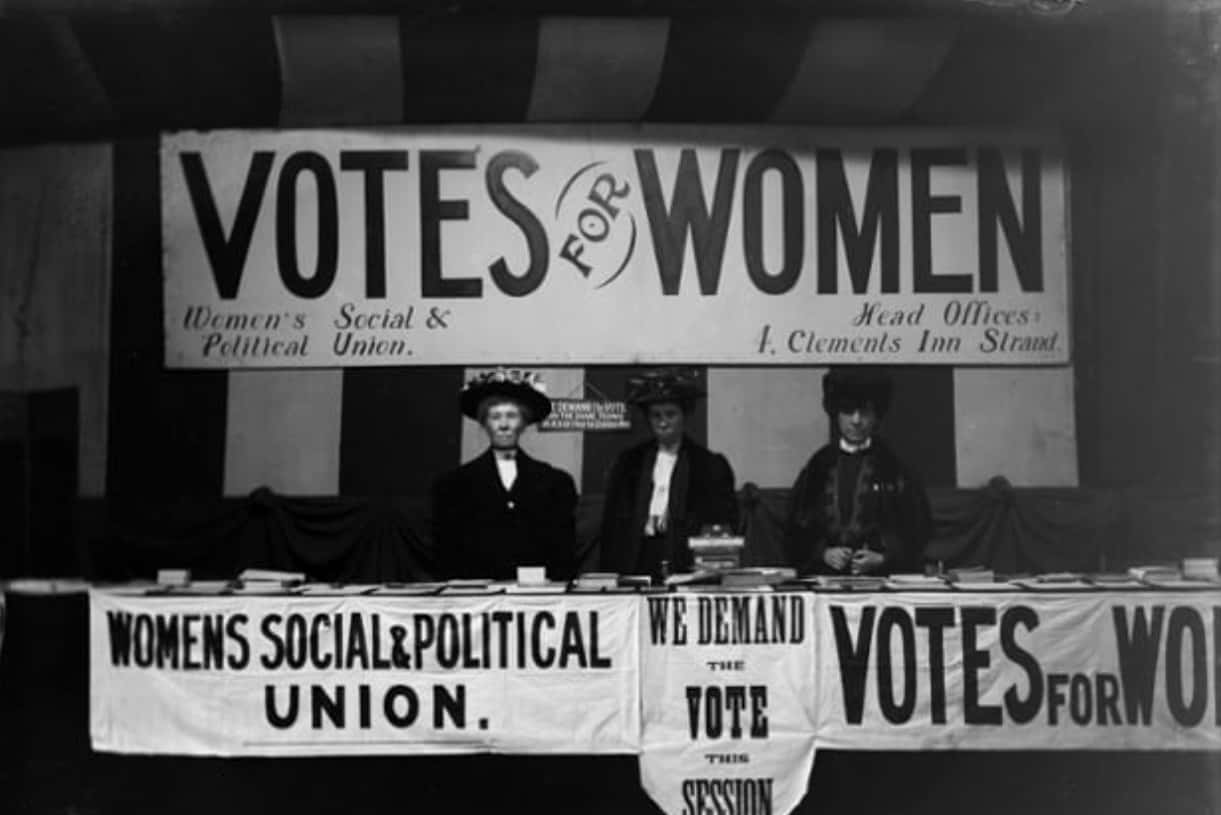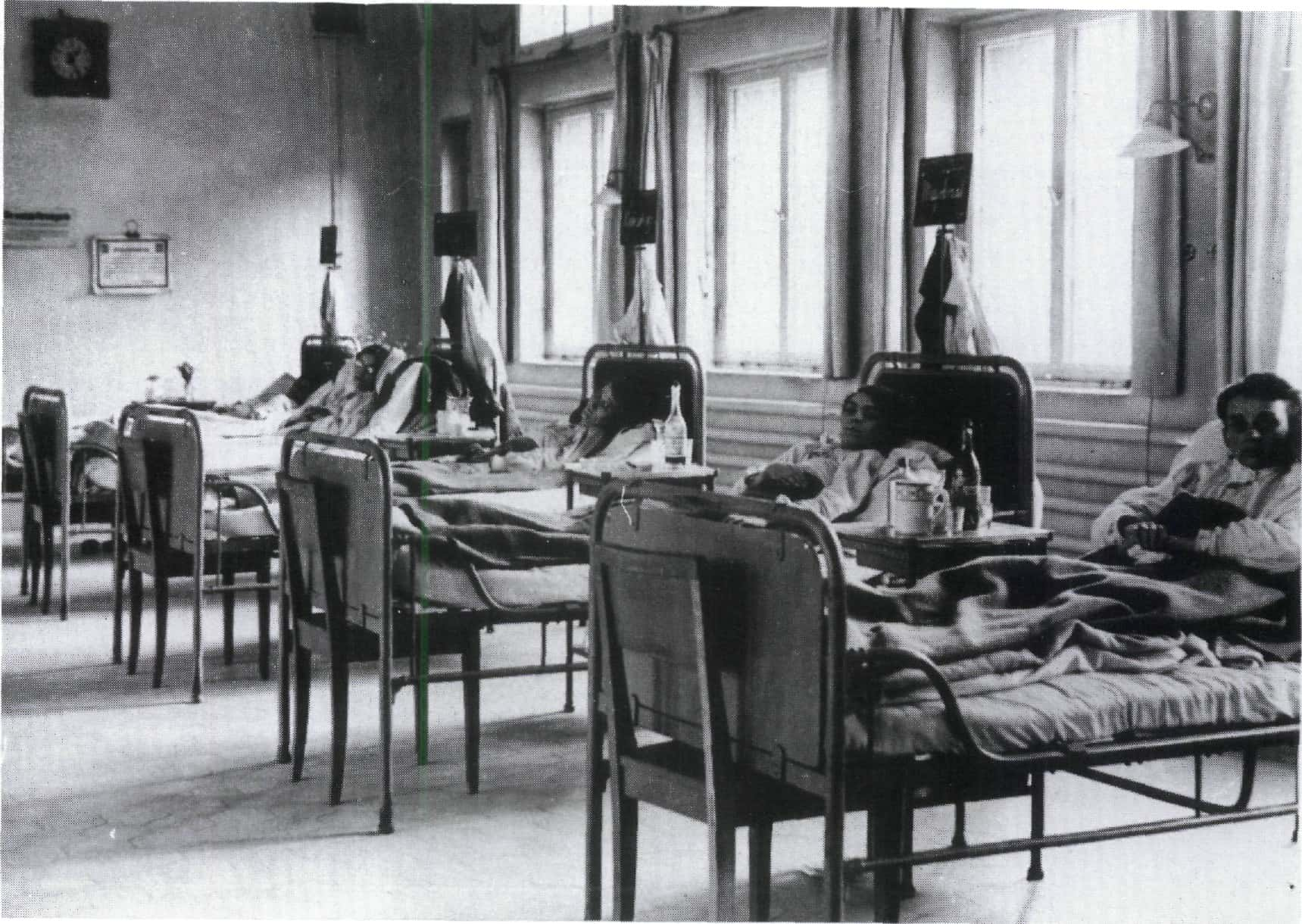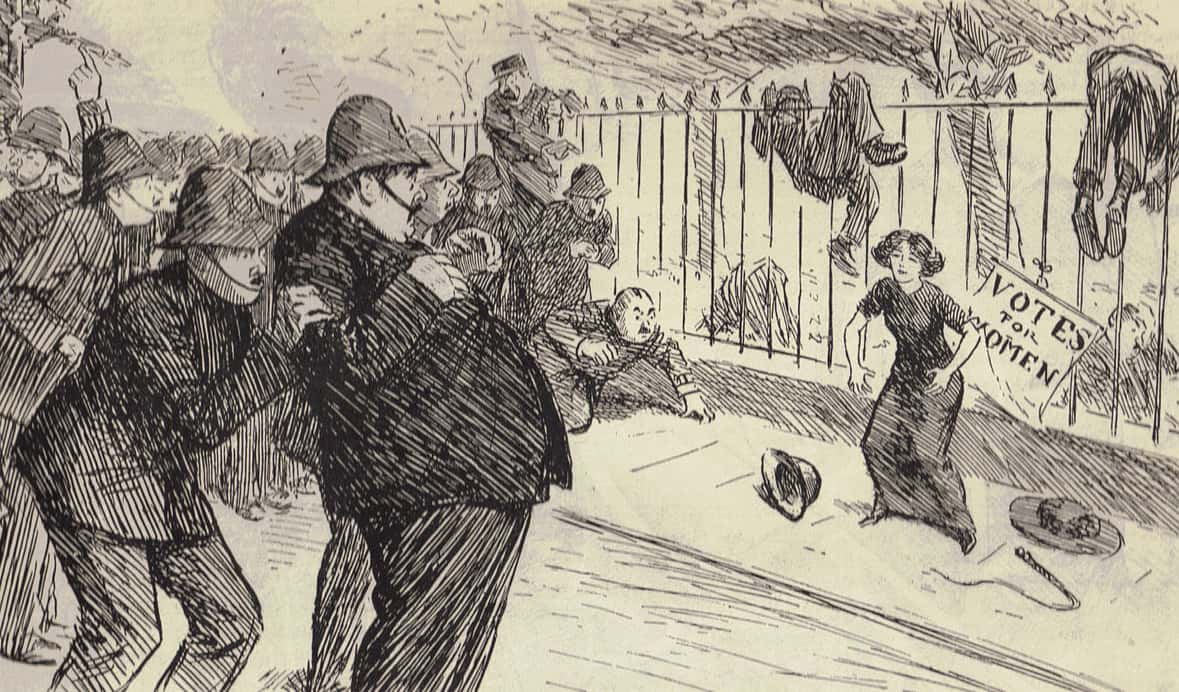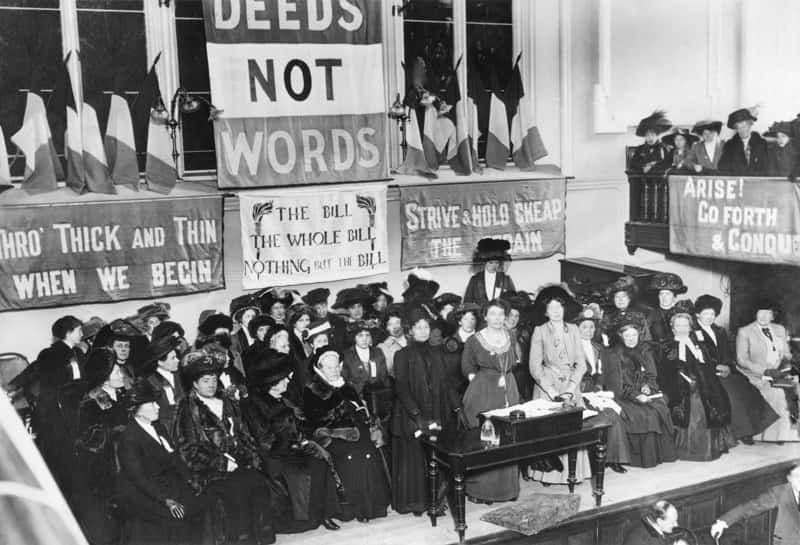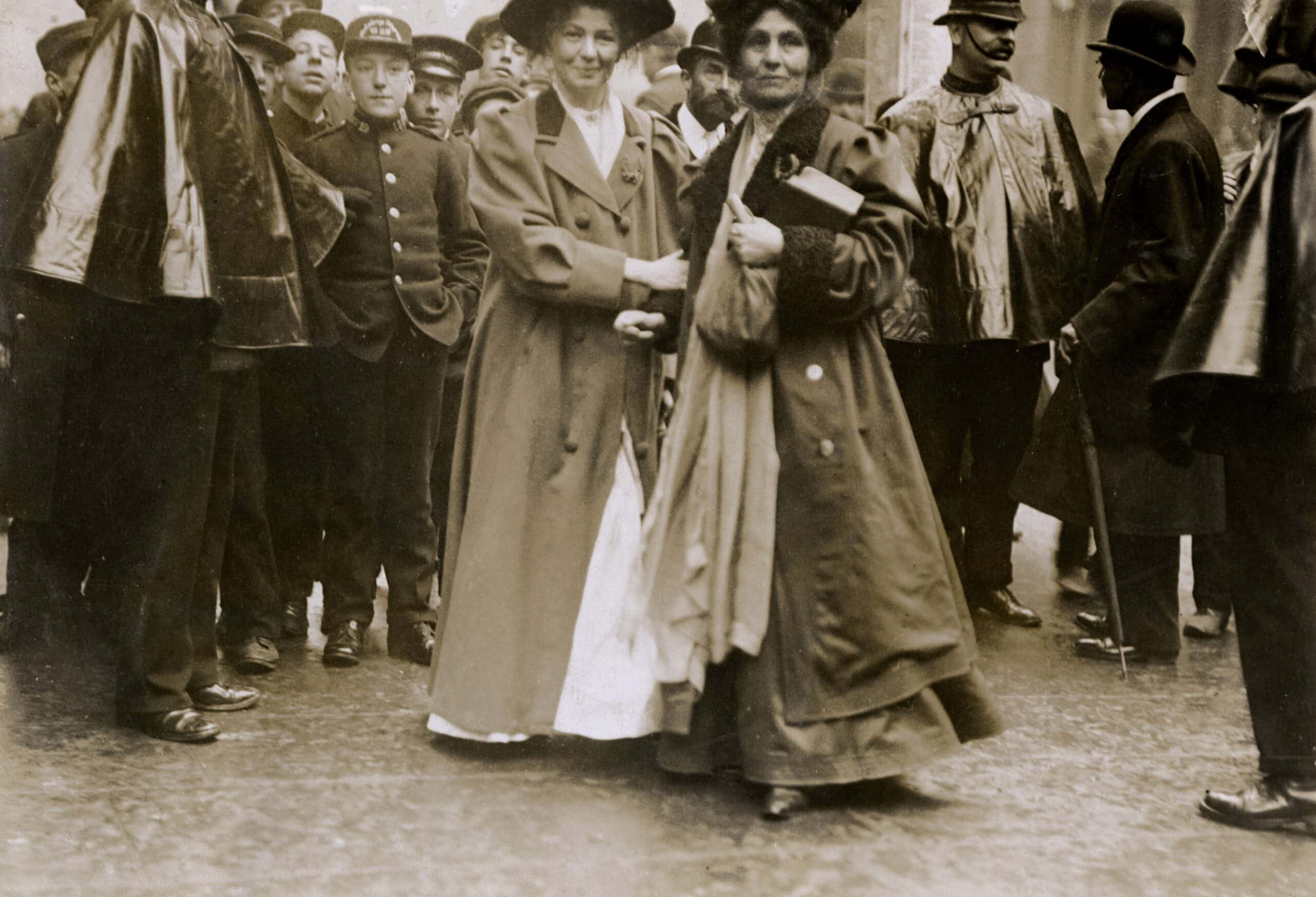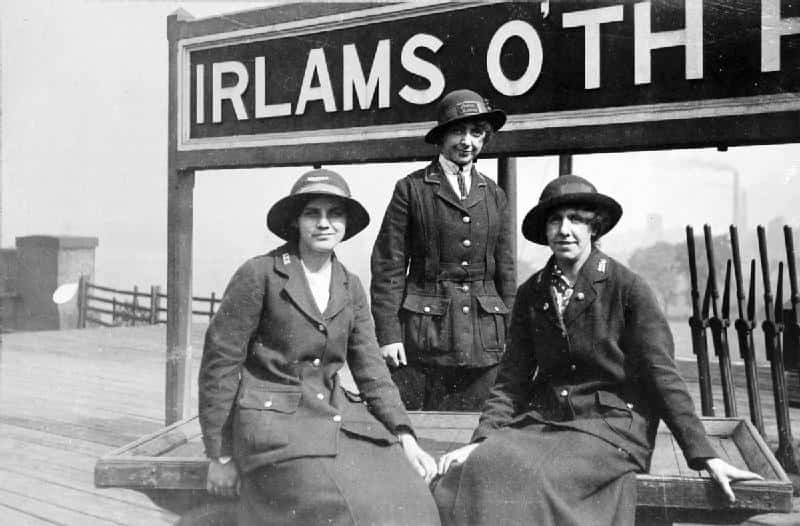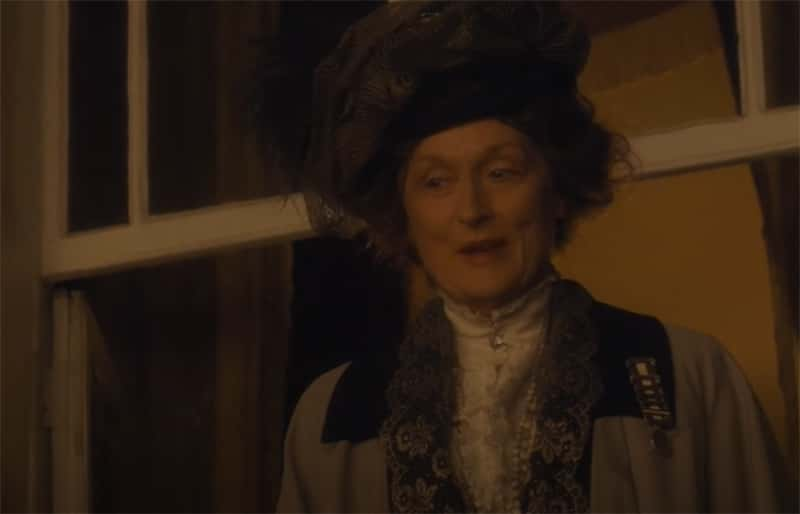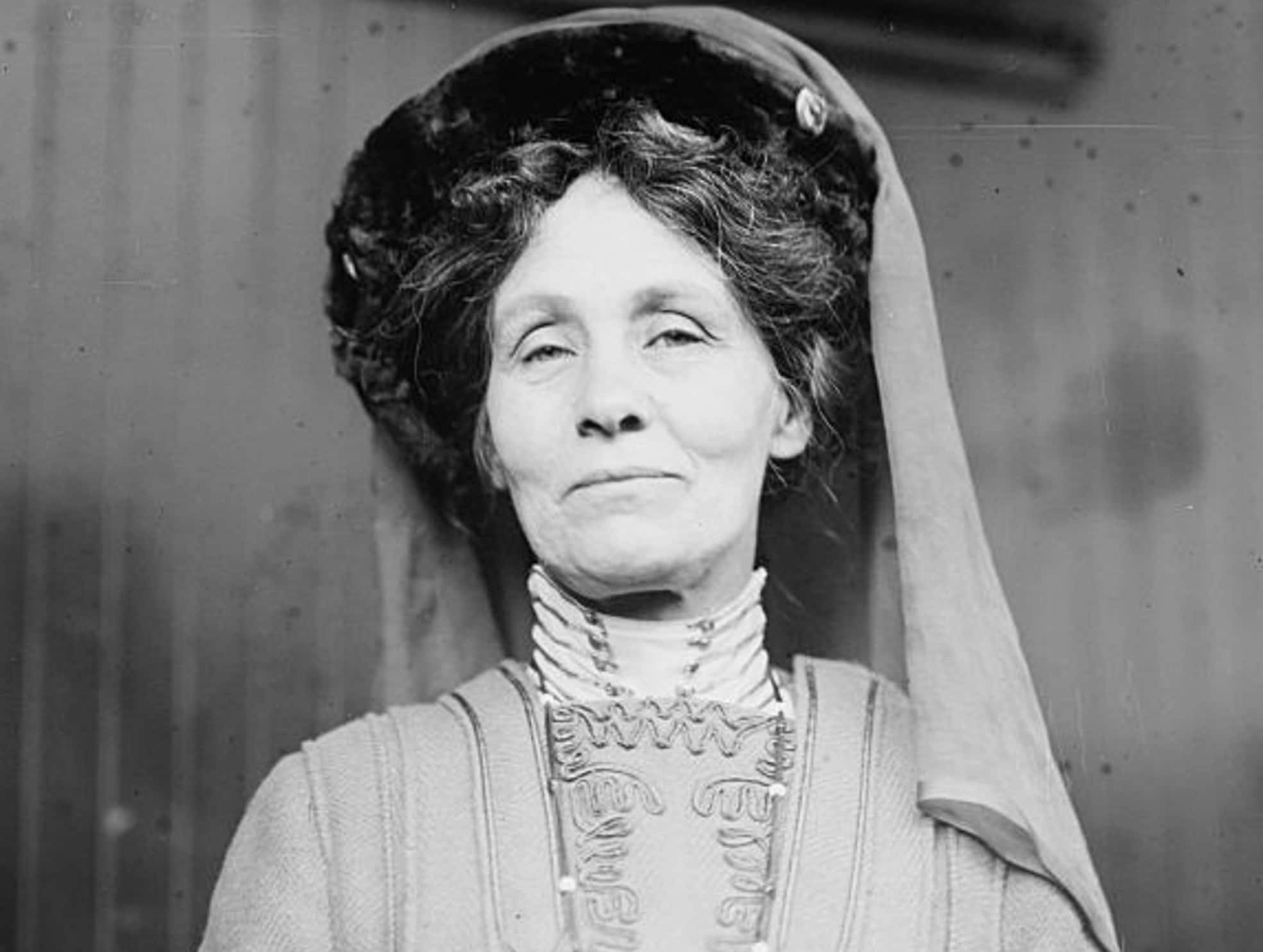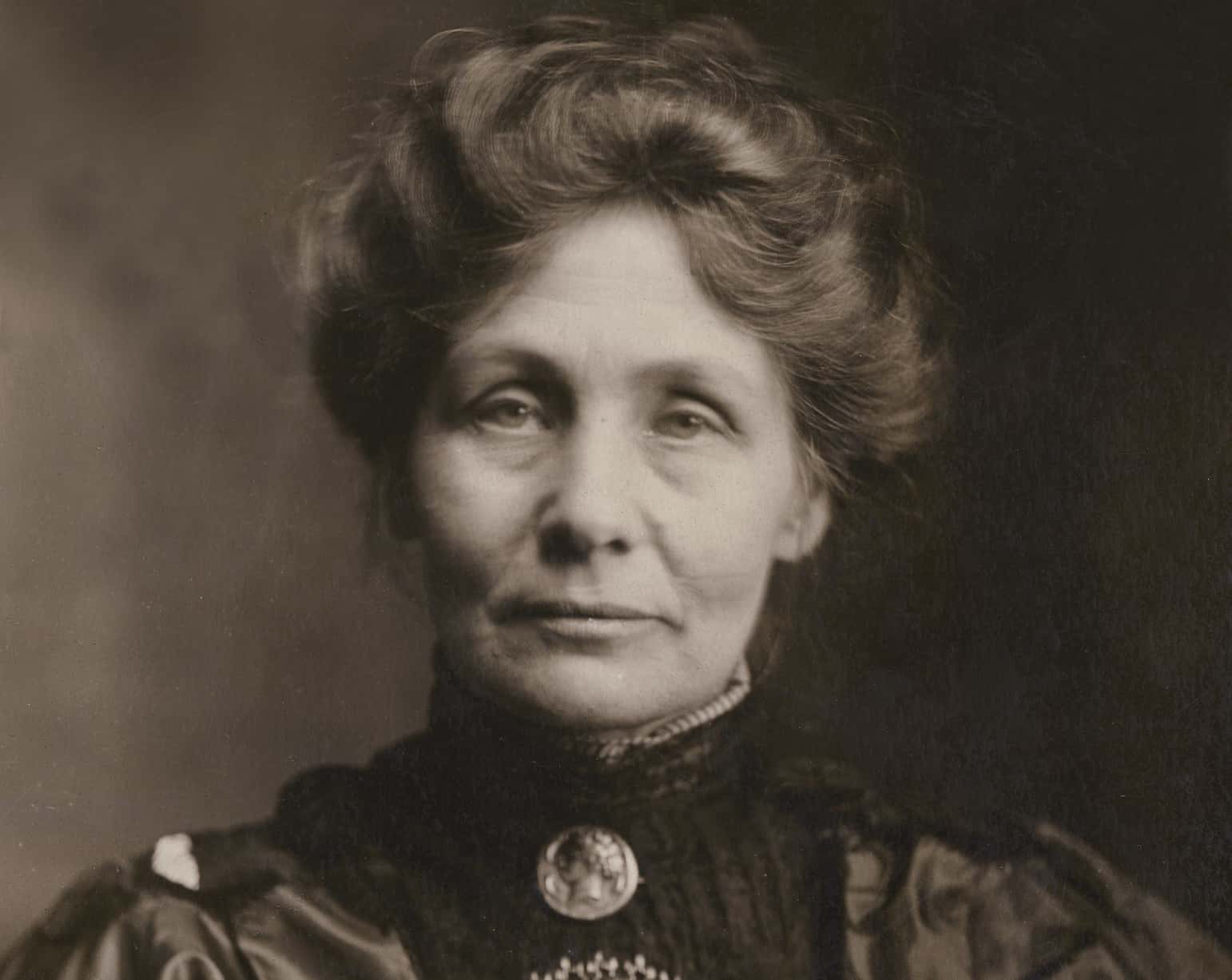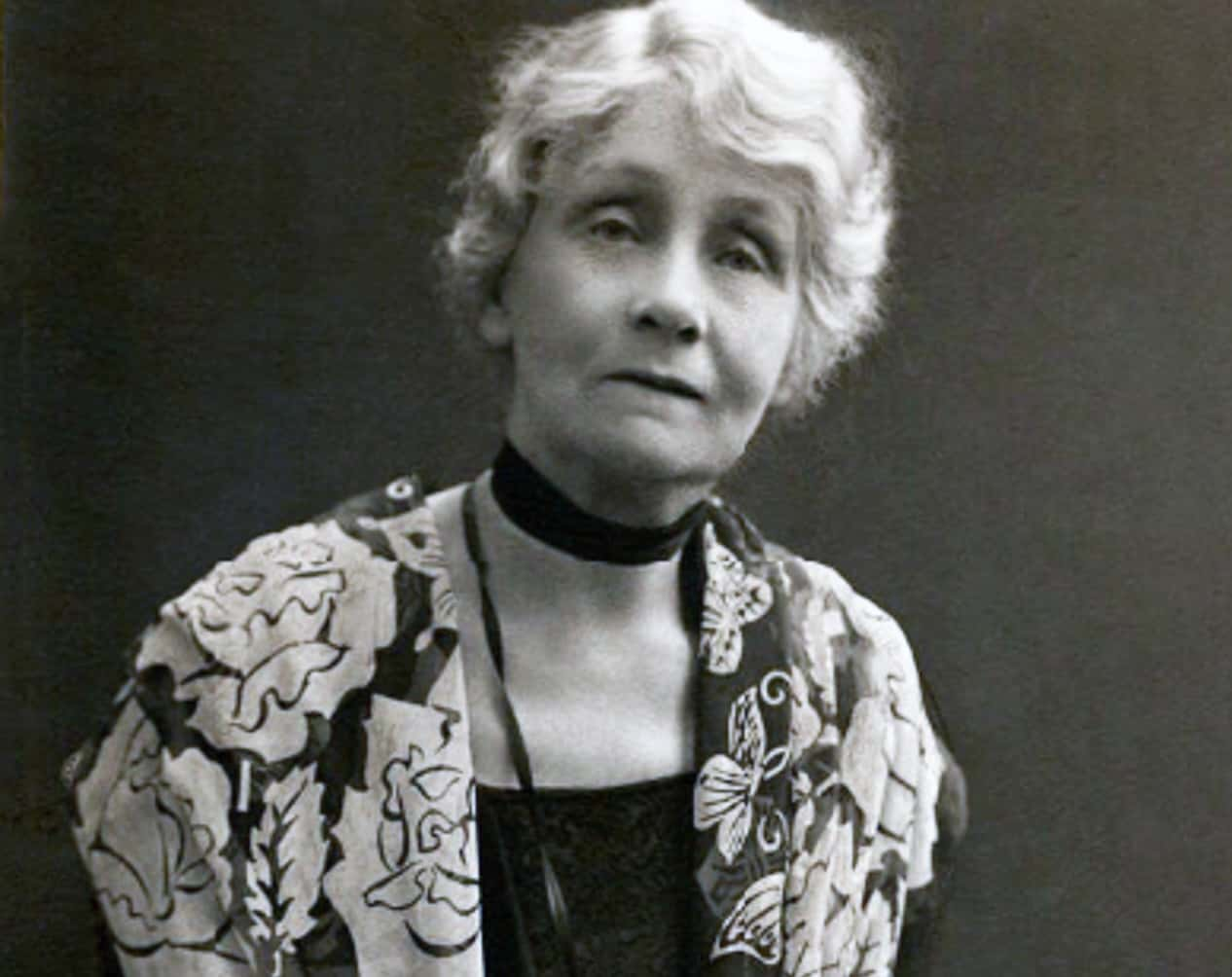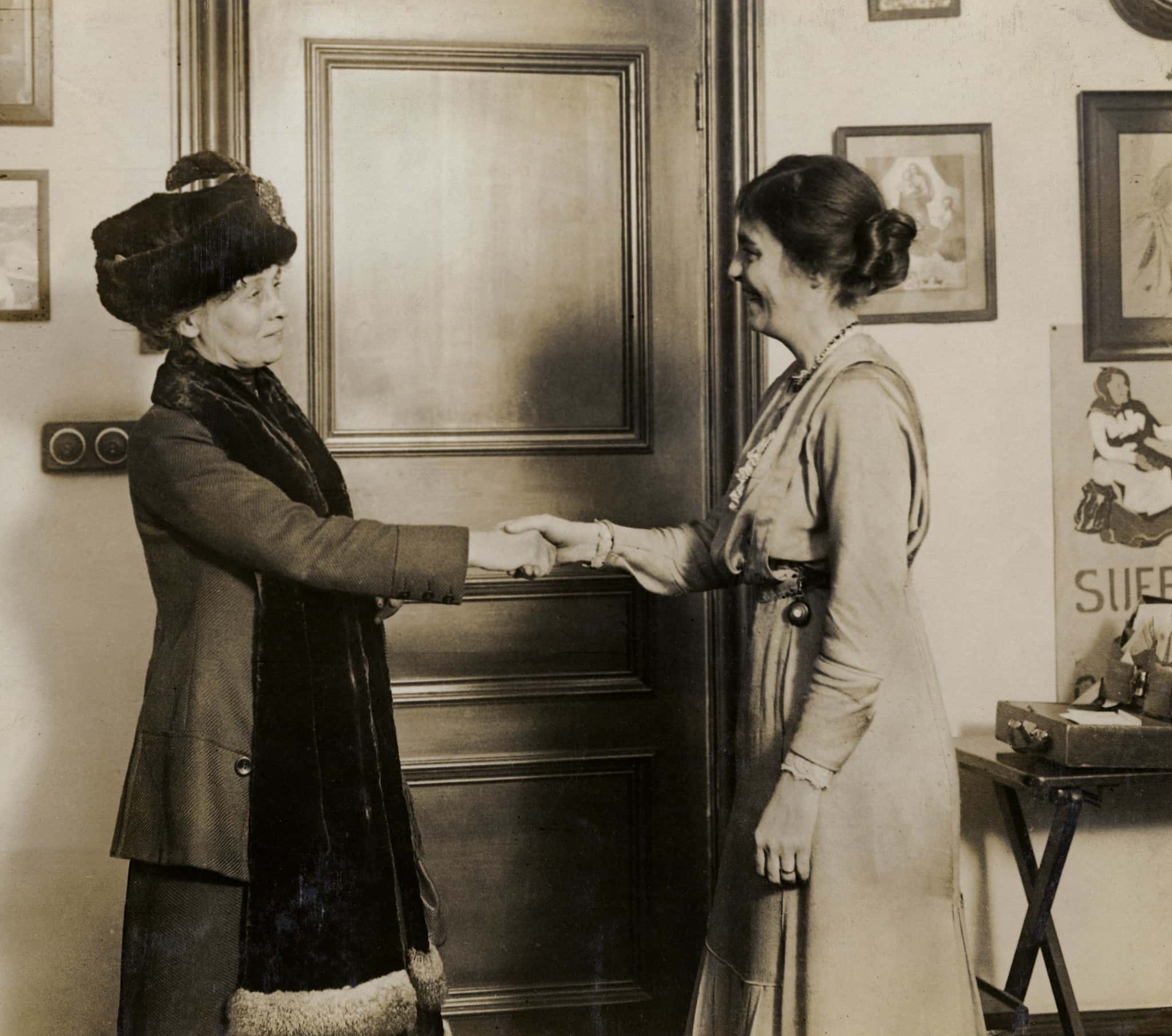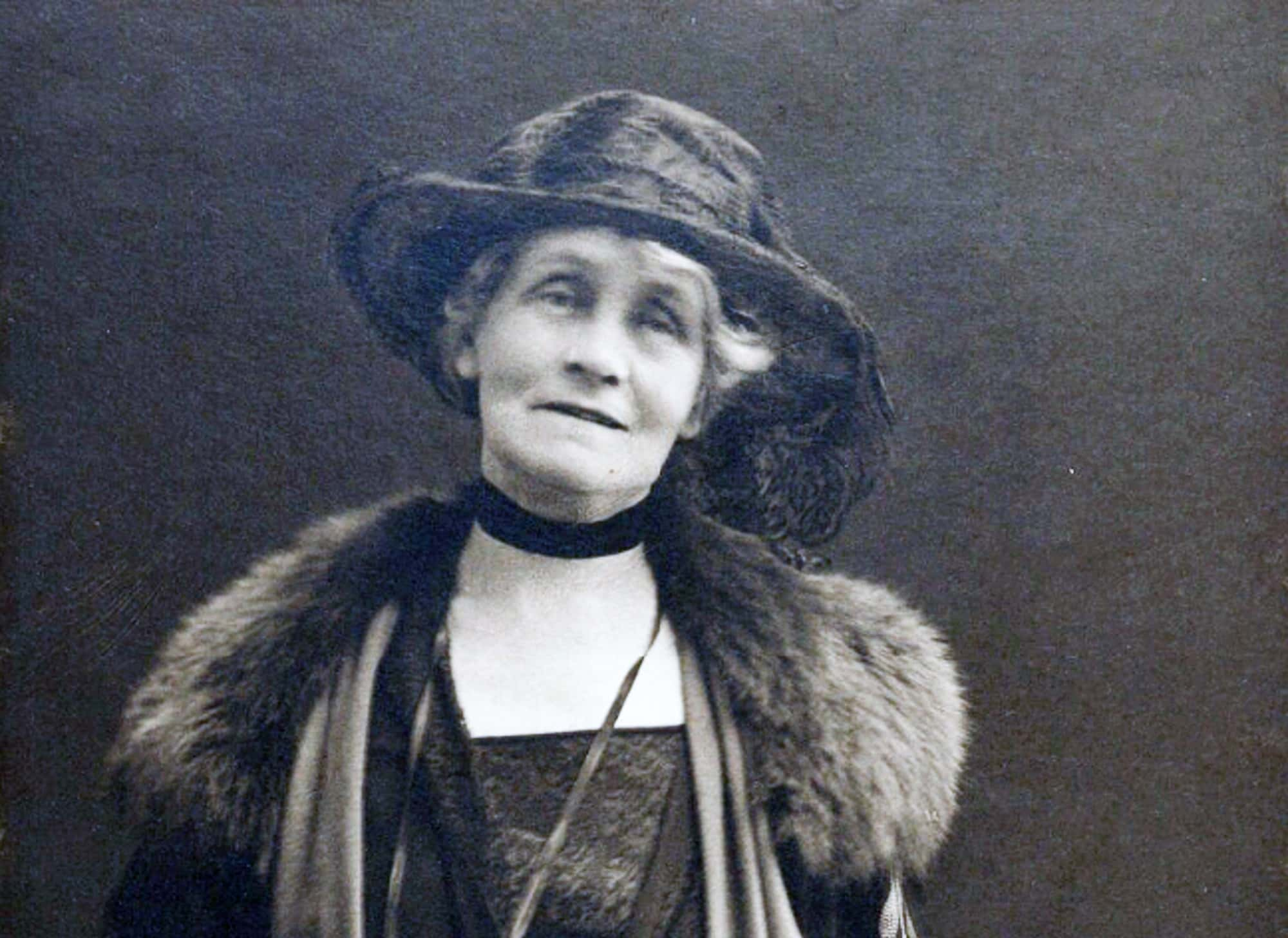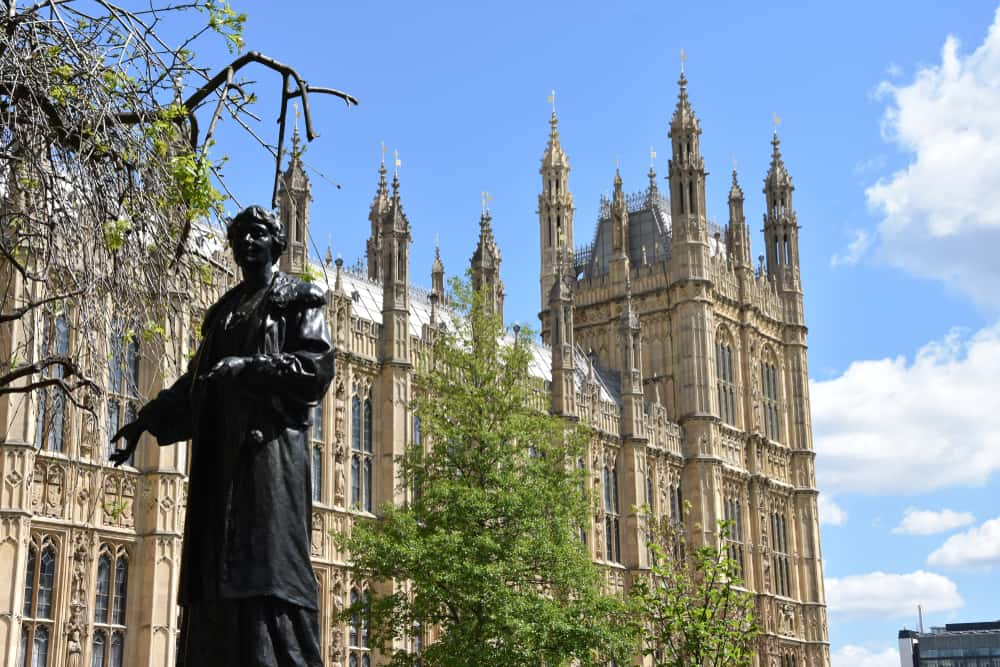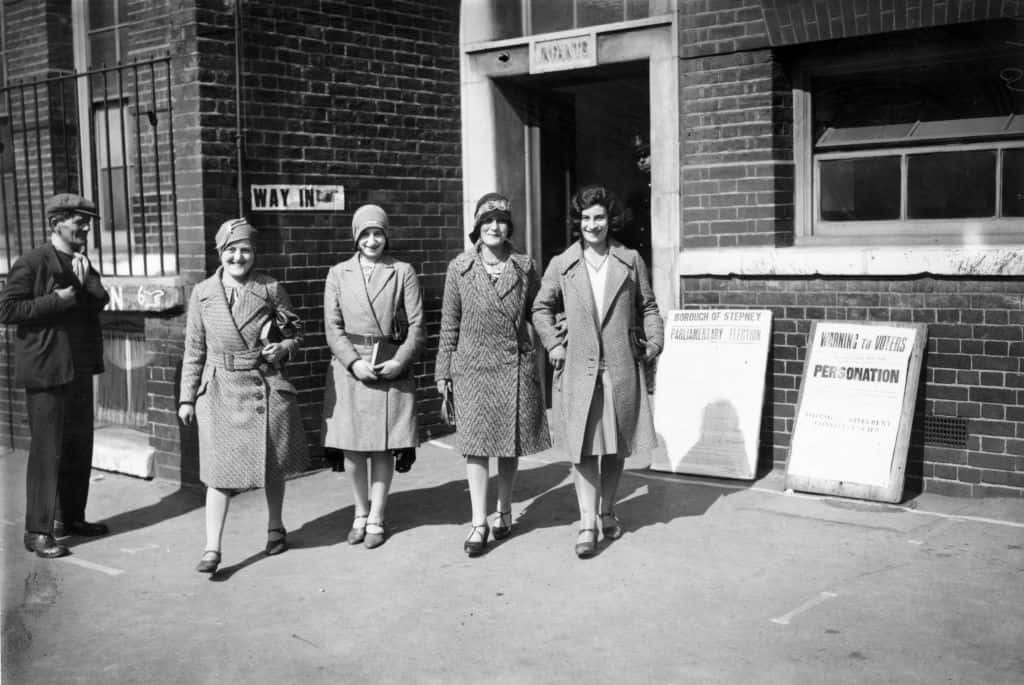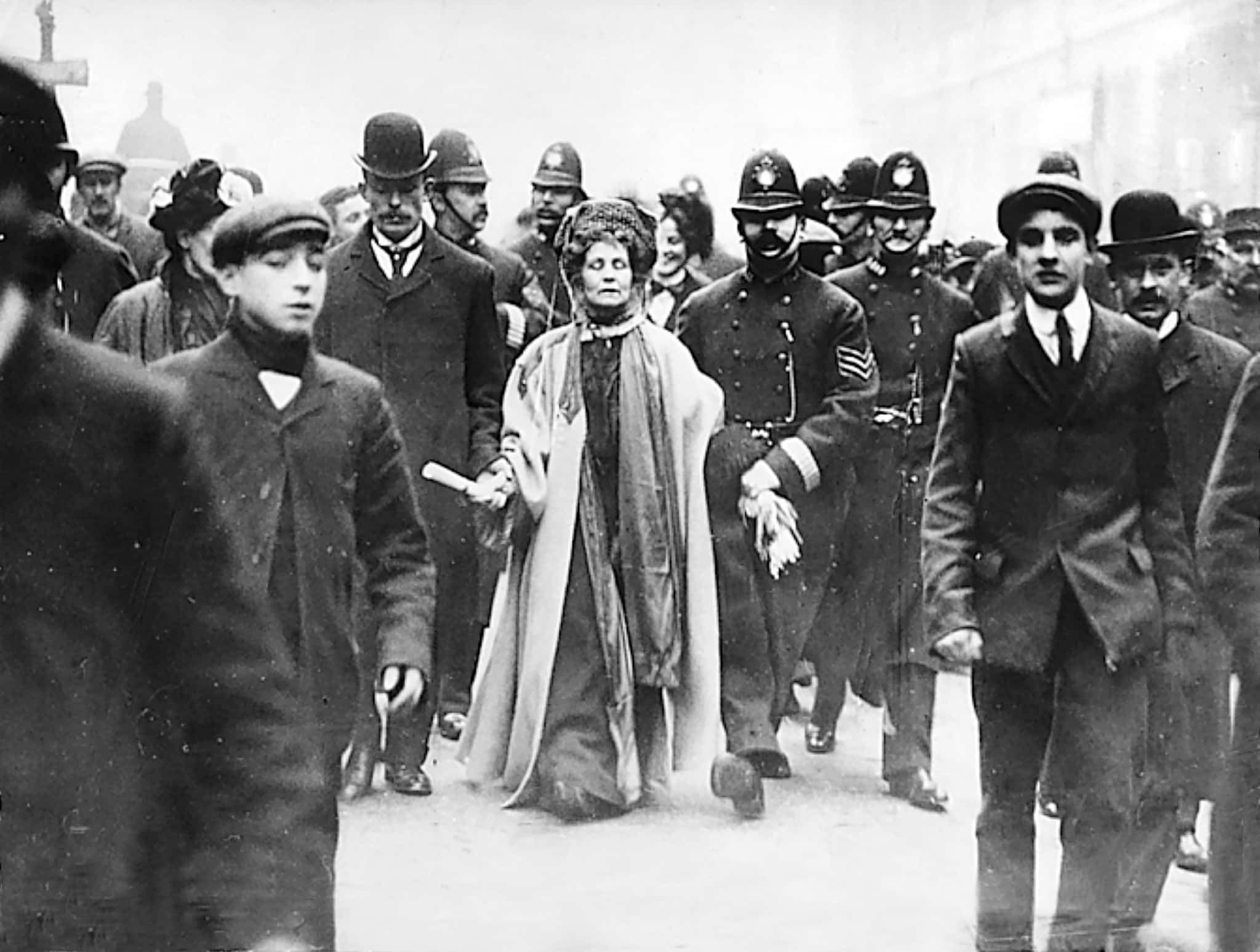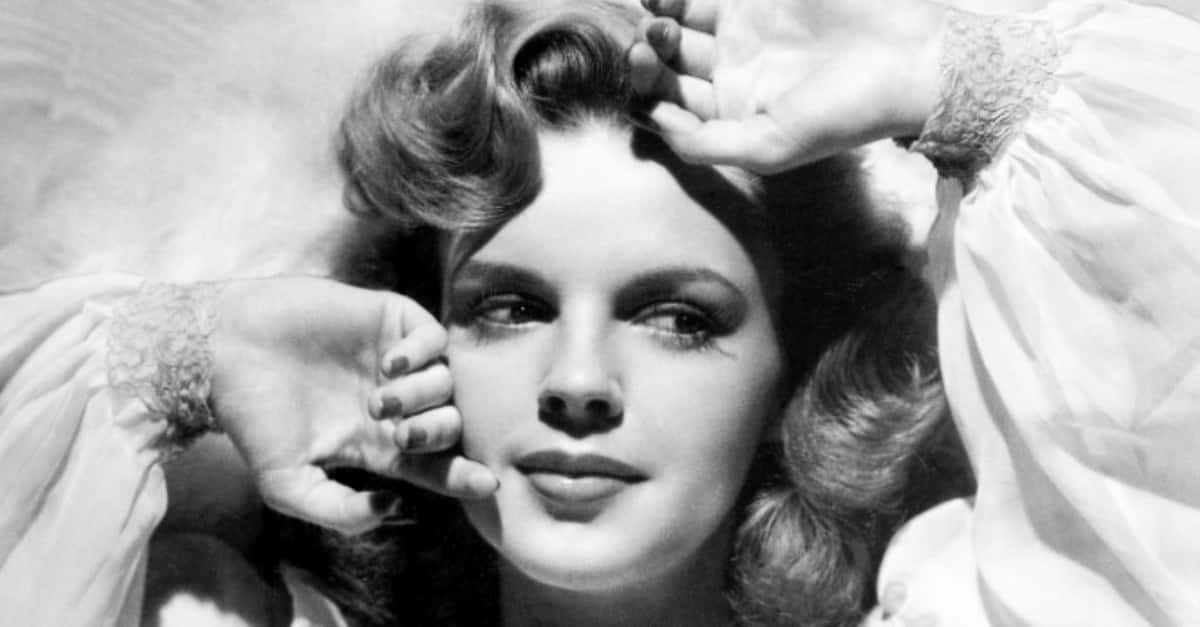Emmeline Pankhurst was a trailblazer with a starring role in the fight for women’s suffrage in the United Kingdom. Her tactics ranged from the mundane to the militant, for which she was equally praised and condemned. From staging peaceful hunger-strikes to socking officers in the jaw, Pankhurst did it all in the name of equality. At once a fierce mother and fiery activist, read on to discover these complementary, contradictory, and confounding facts about Emmeline Pankhurst, the first suffragette.
1. She Was Born to be an Activist
How much significance does one’s birthday have on their life’s trajectory? If you were to ask Emmeline Pankhurst, she would likely have answered, "A LOT!" Her birth certificate states her birthday as July 15, 1858, but Pankhurst—and many of her contemporaries—insisted that her birthday was, in fact, a day earlier. What’s the significance of July 14, you ask? Well...
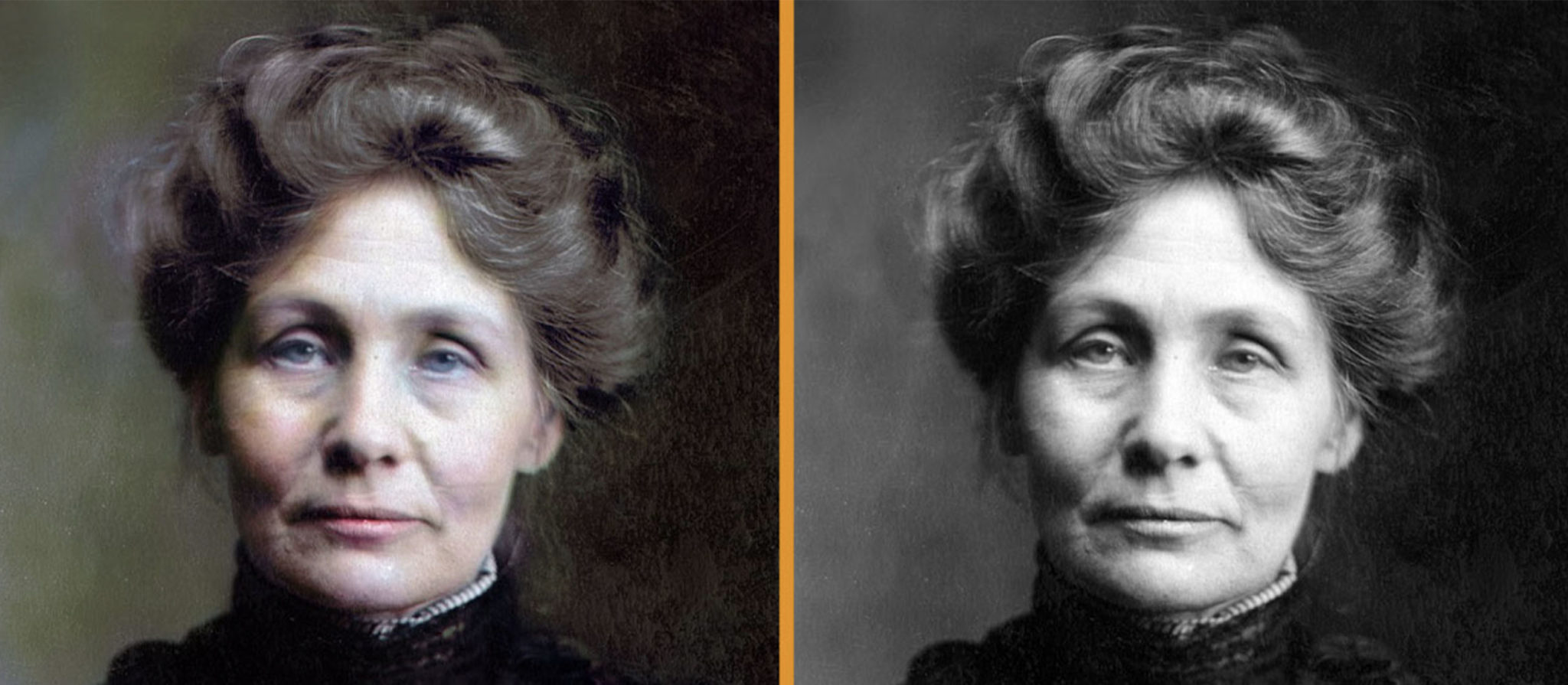
2. She Was a Bastille Baby
Pankhurst claimed that her birthday was July 14. This meant she was born on Bastille Day, the anniversary of the storming of the Bastille during the French Revolution. She stated, "I have always thought that the fact that I was born on that day had some kind of influence over my life". It seems as though rebellion and revolution were in her blood. That and some very political parentage, I imagine…
3. Her Parents Didn't Mess Around
Bedtime stories for kids often involve magical lands, fairies and elves, and a happily ever after. But if you were growing up in the Pankhurst household, your bedtime literature would have been a little more substantive. Pankhurst’s mother, Sophia, read the American classic Uncle Tom’s Cabin to her brood of eleven children before sending them off to dreamland. That early exposure to literature appears to have paid dividends…
4. She Was Hooked on Phonics
Do you remember what you were doing at the age of three? I was probably picking my nose. According to one source, Emmeline Pankhurst was already reading after graduating from her terrible twos. In case that’s not impressive enough, Pankhurst was reading Homer’s Odyssey by the tender age of nine. However, despite her prodigiousness, her parents were not impressed…
5. Her Parents Were Progressive…ish
Pankhurst's parents, Sophia and Robert, were quite progressive...by the standards of their day, at least. While they encouraged their children in political life, they expected their daughters to become wives and homemakers. To be exact, it was their intention that their daughters "marry young and avoid paid work". But they must have known Emmeline was determined to do more…
6. She Might Have Been "Emmett" Instead of "Emmeline"
Little Emmeline Pankhurst, tucked away in her bed one night, overheard her father say something that cut her to her core. His words would greatly impact the trajectory of her life. While pretending to be asleep, Pankhurst heard her father utter, "What a pity she wasn’t born a lad". No offense to her father, but history is pretty lucky she was born a lass!
7. She Almost Married the Wrong Man
Emmeline would go on to marry Dr. Richard Pankhurst and have a blissful married life—but it almost never happened, thanks to her father. While studying in Paris, Emmeline’s friend set her up with a French gentleman and the two became engaged. Who knows what would have become of her had the marriage gone through, but it wasn't meant to be: Her father refused to pay a dowry. Maybe he knew his daughter’s true love was still out there…
8. Her Husband Was…Older
Emmeline’s marriage to Richard Pankhurst was a match made in heaven. Richard was a highly educated lawyer, business owner, activist, and ally to suffragists. There was just one caveat: He was older than Emmeline. A lot older. When the two married in 1878, Richard was more than twice the age of the 21-year-old Emmeline. Still, by all accounts, the two enjoyed marital bliss—but not everyone supported the courtship…
9. Her Mother Disapproved
Back in Pankhurst's day, there was something of an "art" to courtship and wooing a man into marriage. At least, that’s how Emmeline’s mother Sophia saw it. She was properly aghast at the manner in which her daughter threw herself at Richard Pankhurst. Apparently, Sophia wanted her daughter to play coy, but subtlety really wasn’t Emmeline’s strong suit. Not all of her mother’s advice went unheeded though…

History's most fascinating stories and darkest secrets, delivered to your inbox daily.
10. She Was a Great Homemaker
If Pankhurst harbored any resentments against her parents for their traditional views on girls’ education, it didn’t show. According to Pankhurst's daughter, Sylvia, her mother was a great homemaker. "Beauty and appropriateness in her dress and household appointments seemed to her at all times an indispensable setting to public work". But that didn’t mean that playing at Martha Stewart in the home kept her from playing at Churchill outside of it…
11. She Was a Working Mother
Emmeline Pankhurst was a great mother and homemaker, but that doesn't mean she lost sight of the world outside of her house. Certainly not. While her little babes were in diapers, Pankhurst was on the executive committee of the Women’s Suffrage Society and the board of the Married Women’s Property Act. That act only passed thanks to her tireless efforts—but home life was about to get tough…
12. She Lost a Son
Pankhurst gave birth to Francis "Frank" Pankhurst in 1884. Sadly, the little tyke would succumb to diphtheria in 1888, just four years later. Emmeline was so overcome with grief that she commissioned two portraits of her infant son…and then couldn’t bring herself to look at them. Pankhurst stashed them away in a cupboard in her bedroom. And there was more grief in store…
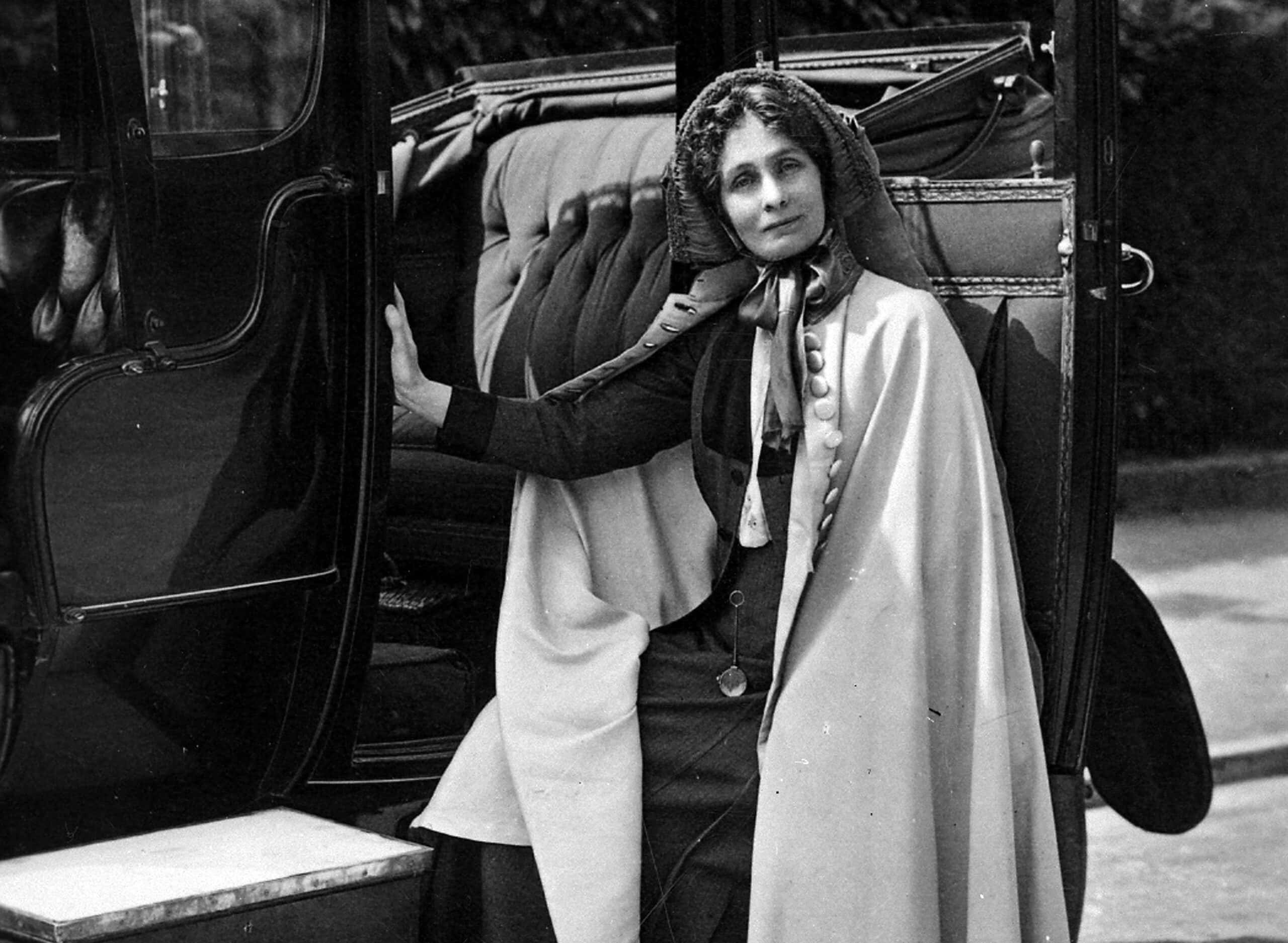 Flickr, The National Archives UK
Flickr, The National Archives UK
13. She Lost Her Second Son
Pankhurst's fifth and youngest child was Henry Francis, a boy named after his deceased older brother. Maybe it was just in the name, but poor health would dog Henry most of his life. Eventually, an inflamed spinal cord left Henry paralyzed. He at least got to grow up past childhood, but by the time he was 21, his body couldn't carry on.
This time, Emmeline returned from a speaking tour in the US in time to be at her son’s bedside when he passed on. But she had little time for grieving…
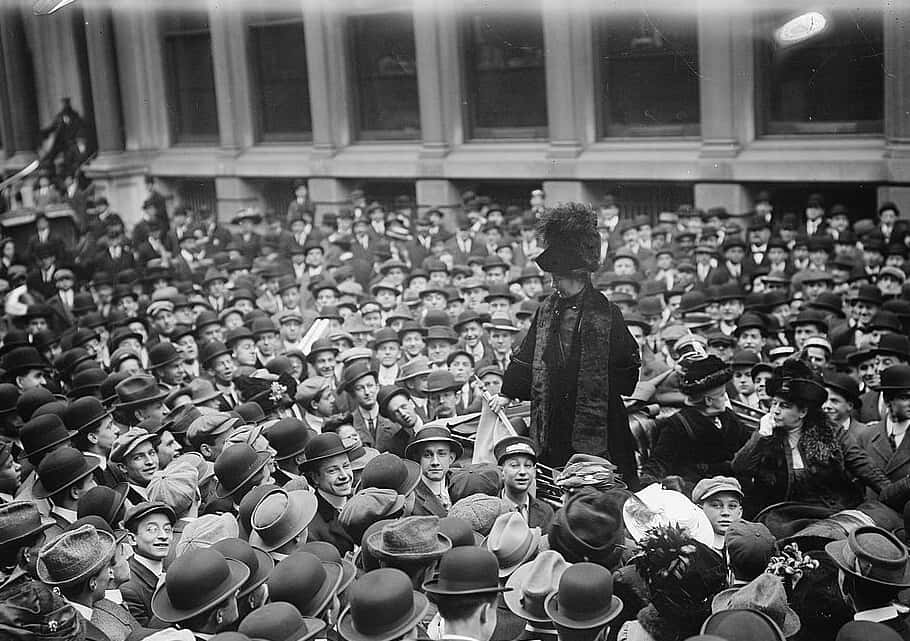 Flickr, The Library of Congress
Flickr, The Library of Congress
14. She Was Determined
The loss of her first son left Pankhurst reeling for quite some time, but by the time she lost Henry, she had steeled herself. Just five days after burying the 21-year-old Henry Francis, Pankhurst was back out on the streets, advocating for women’s suffrage. She addressed a crowd of 5,000 and silenced her would-be hecklers with her display of strength, courage, and determination.
15. She Was a Fierce Mother
Perhaps because of—or in spite of—the fact that she herself was a formidable woman, Pankhurst expected much of her daughters. Cristabel, Sylvia, and Adela Pankhurst would all, with the help of their monolithic mother, become activists and suffragettes in their own right. But Emmeline wasn't about to let them forget who the O.G. suffragette really was…
16. She Was Critical of Sylvia
With all of the Pankhurst women active in politics, it was almost inevitable that they would rub shoulders…and bump heads. While they were all technically "suffragettes," the elder Pankhurst took umbrage with her daughter Sylvia’s organization using the term for themselves. She demanded that Sylvia change her group's name. When Sylvia refused, Emmeline wrote to her, "You are unreasonable, always have been & I fear always will be". For her part, Sylvia seems to have shrugged it off…
17. She Played Favorites
Pankhurst gave birth to five children in the span of ten years, and though parents don’t like to admit it…they must have favorites, right? Emmeline certainly did. Little Francis, had he lived, might have been the apple of his mother’s eye, but that distinction ultimately went to Cristabel. Sylvia later said, "She was our mother's favorite; we all knew it, and I, for one, never resented the fact".
However, her other daughter, Adela, was not so even-tempered.
18. She Exiled Adela
Adela was the youngest of the Pankhurst sisters. While also a suffragette, Adela’s political differences with her mother became so intense that Pankhurst literally shipped Adela to the other side of the globe to get rid of her. She bought her daughter a boat ticket to Australia and sent her off to spread the Suffragette movement there. Pankhurst would never see her daughter in person again after that.
19. She Rubbed Some Salt in the Wound
WWI broke out in 1914 and, though Pankhurst continued championing women’s rights, she became an ardent supporter of the effort. As if her differences with her daughters Sylvia and Adela weren’t already bad enough, they had both become pacifists who disagreed with the conflict. Emmeline would write to Sylvia, "I ashamed to know where you and Adela stand". One might just argue that Emmeline was more militant than her daughters…
20. She Wasn’t Afraid of Prison
In Pankhurst's early days—before she became the formidable suffragette we know today—even talking about women’s suffrage was a dangerous affair. She faced potential prison time for meeting with her political conspirators, but Pankhurst didn’t seem afraid of the clink. When asked about the prospect of prison time, she replied, "It wouldn't be so very dreadful, you know, and it would be a valuable experience". And boy did she get a lot of "experience".
21. She Had a Rap Sheet
For all of the criticisms that might be lobbied at Emmeline Pankhurst, let it never be said that she didn’t have the courage of her convictions. This woman wasn’t just talking the talk, she was walking the walk. In her many decades of fighting for women’s rights, the authorities locked her up several times. Some sources say it was seven times…others say 13. Either way, it was clear that getting nabbed didn't scare her for a second.
22. She Fought the Man
Whenever guards mistreated suffragettes in prison, it helped sway the newspapers and public opinion in their favor…so Pankhurst made sure to get ill-treated. While protesting in 1909, Pankhurst struck an officer in the face. Twice. Needless to say, she was apprehended by the authorities—but her response in court was EVERYTHING…
23. She Broke the Law to Make the Law
While, strictly-speaking, Pankhurst was a criminal, it’s hard to think of her in that light. She said it best herself while on trial for her "crimes" in 1908: "We are here not because we are law-breakers; we are here in our efforts to become law-makers". You know what they say, you’ve got to break some eggs to make an omelet. Speaking of breaking eggs…
24. She Was Attacked for Her Beliefs
In case you were thinking that the use of force was a one-sided, attention-grabbing affair by Pankhurst and her associates, think again. In 1908, an all-male mob attacked Pankhurst and one of her fellow suffragettes, throwing rotten eggs and rock-laced snowballs at them. They then set upon the two women, beating them and causing painful injuries. Though Pankhurst and her suffragettes were out to change the world, there were plenty of men who liked it just as it was.
However, militancy wasn’t foreign to Pankhurst, either…
25. She Was an "Autocrat"
Pankhurst founded the Women’s Social and Political Union (WSPU), the organization that would form the bedrock of her influence. When it came to leading the group, she was never shy about her role. Ironically, fighting for the right to vote meant running an autocratic organization. In her own autobiography, Emmeline wrote, "[…] we have no annual meeting, no business sessions, no elections of officers. The W.S.P.U. is simply a suffrage army in the field". Where do I enlist?
26. She Advocated Prison Reform
Emmeline Pankhurst talked a big game when it came to prison, but she could back it up. She never shirked from spending time in the lock-up herself—but that’s not to say that she enjoyed prison. Quite the opposite. Emmeline and the other suffragettes were subjected to terrible conditions in Holloway Prison. In her autobiography, she wrote, "Holloway became a place of horror and torment […] It is impossible to believe that any woman ever emerged from such a horror less criminal than when she entered it".
To her credit and the credit of her fellow suffragettes, they found peaceful means of protesting their horrific treatment…
27. She Was Hungry… for Change
To protest the dreadful conditions in prison, Pankhurst and the other suffragettes employed hunger strikes. In response, guards force-fed them, but not before things got ugly. Pankhurst wrote, "Often there is intense headache, with fits of dizziness, or slight delirium. Complete exhaustion and a feeling of isolation from earth mark the final stages of the ordeal".
28. She Had an All-Female Bodyguard
All of this time locked up and hunger-striking really is a young woman’s game. Over the years, they took their toll on Pankhurst's health, and she couldn’t risk spending any more time in Holloway Prison's horrid conditions. So, she hired a bodyguard. An all-female bodyguard. An all-female, jujitsu-trained bodyguard. If it wasn’t a historical fact, I would have guessed that it was the premise for a comic book—and I would want to read that comic book.
29. She Was a Firebrand
Few people would object to the WSPU’s use of hunger strikes in the fight for women’s suffrage. Many, however, took umbrage at their other, shall we say…less than peaceful methods. Some years before the outbreak of WWI, members of WSPU were responsible for carrying out arson attacks. They set park buildings, railway carriages, pillar boxes, and even an orchid house aflame to bring attention to their cause.
30. She Endorsed Militancy
Pankhurst and her daughter Cristabel were in charge of the WSPU at the time of the arson attacks. Both she and Cristabel denied having ordered the attacks, but they didn't denounce them. Rather, they told the public that the women responsible had their full support. Given Emmeline’s later admission to having total authority over the organization, it seems dubious that the attacks could have happened without at least her knowledge.
31. She Was Committed to the WWI Effort
During WWI, Emmeline left the fighting to the armies of Europe. She agreed to an "armistice" with the government, and they agreed to release all WSPU members from prison. Seeing the dearth of able-bodied men at home, Emmeline encouraged the women of England to "keep the country going, to get in the harvest, to carry on the industries". In true Emmeline fashion, however, her support for the WWI effort was a little too ardent for some…
32. She Probably Didn’t Hand Out White Feathers
Emmeline’s detractors—including fellow suffragettes who disagreed with her tactics—found plenty reason to criticize her during WWI. One of the accusations lobbied her way was that she shamed young men into joining the WWI effort. According to these accusations, Emmeline handed out white feathers—a common symbol of cowardice—to young men in civilian clothing.
However, there’s no evidence that she did anything of the sort. In fact, her actions indicate otherwise…
33. She Opened an Adoption Home
With the savagery of WWI raging across Europe, there were many children born out of wedlock and put into orphanages. Despite facing intense criticism for aiding "illegitimate" children, Emmeline opened an adoption home, which she later handed over to Princess Alice. But even then, Emmeline’s motherly instinct kicked in and she ended up taking her work home with her.
34. She Adopted Four Kids
It’s never too late to have kids, so they say. That being said, I can’t imagine anyone finding the energy to have four kids…at the age of 57. But that’s just what Emmeline did. Just as most people would be in the process of getting their kids out of the house and enjoying their retirement years, Emmeline adopted four girls.
35. She Might Have Adopted Even More
I’m not the only one who's flabbergasted by Emmeline’s tireless and enviably fierce maternal instinct. She was questioned about her decision to adopt these four children at her age and relatively precarious financial position. Her response…priceless: "My dear, I wonder I didn’t take forty". For the sake of a good night’s rest, I’m glad she didn’t.
36. She Was an Imperialist
Despite her progressive views, Pankhurst was an ardent supporter of the British Empire in her later years. She wrote, "Some talk about the Empire and Imperialism as if it were something to decry and something to be ashamed of. [I]t is a great thing to be the inheritors of an Empire like ours...great in territory, great in potential wealth". But before we denounce her, she had good reason to support the empire…
37. She Wanted to Fight Poverty and Ignorance
Emmeline’s support for the British Empire was based in noble causes. She went on to write, "If we can only realize and use that potential wealth we can destroy thereby poverty, we can remove and destroy ignorance". We can't say that's what the British Empire did, but it's certainly a nice thought...
38. She Became a Conservative
Pankhurst made several about-faces in her later years, but she remained a suffragette above all else. One of the more surprising turns was when Pankhurst—an arson-endorsing, window-smashing liberal with a rap sheet a mile long—joined the Conservative Party! Why the change of heart? Well, it's complicated…
39. She Placed Women’s Suffrage Above All Else
The post-WWI world was messy, to say the least. Up was down, left was right, right was wrong. The only constant might have been Pankhurst's dedication to women’s suffrage. Pankhurst perceived communism as a threat to women’s rights, but many of her political allies disagreed. Thus, her partnership with the Conservative Party was likely a strategic move rather than an ideological one. But that doesn't mean that she didn't jump straight into the deep end...
40. She Ran for Office as a Conservative
Pankhurst didn’t just join the Conservative Party to get the weekly newsletters…she was running for office. In 1928, two years after joining, Pankhurst decided to run on the Conservative Party ticket for a seat in parliament. Unfortunately, before her campaign could even begin in earnest, scandal and poor health threw her way off course…
41. Her Daughter, Sylvia, Strikes Again
Just as she was getting her campaign for a parliamentary seat going, news of a scandal involving Emmeline’s daughter Sylvia broke out. The younger Pankhurst had given birth, *gasp,* out of wedlock! To make matters worse, Sylvia had given an interview in which she stated "marriage without legal union was the most sensible option for liberated women". That kind of talk sent doilies flying all across England—and yet the scandal intensified…
42. Her Favorite Daughter Was Confused with a Eugenicist
The newspaper article that broke the scandal referred to Sylvia as "Miss Pankhurst," leading many to believe the story was about Emmeline's favored daughter Christabel. Calling the child "a triumph of eugenics" only worsened matters. Upon reading the article, Emmeline spent the entire day crying and effectively ended her campaign for Parliament.
43. Her Passing Brought Her Family Together…Kind of
Just a few months after the shock of the scandal involving Sylvia, Emmeline became critically ill and did not recover. She might take some comfort in the knowledge that her daughters Cristabel and Sylvia (with her child) attended the funeral. Unfortunately, Adela, far away in Australia, did not attend. But her legacy lives on...
44. She Lived to See Women Vote
Emmeline Pankhurst was away in Russia when she learned that Parliament was going to pass the 1918 Representation of the People Act. The Act gave women of a certain age the right to vote—though with many restrictions. Unfortunately, the later amendments to the Act that would extend that right passed just weeks after Emmeline succumbed to her illness.
45. She Was Ready to Defend Herself
The days spent in prison were some of the darkest of Pankhurst's life. She wrote about hearing the sickening screams of women being force-fed in prison. This chilling process involved guards sticking a tube down the women's throats against their will—but Pankhurst wasn't about to go down without a fight. When her time came to be force-fed, Emmeline grabbed hold of a clay jug and, wielding it over her head, threatened, "If any of you dares so much as to take one step inside this cell I shall defend myself". Even behind bars, she was a force to be reckoned with.
46. She Read About Her Husband’s Passing
Pankhurst suffered a lot of loss in her life, but the loss of her husband was particularly painful. She learned about his passing...in the newspaper. While traveling on a train from London to Manchester to see her ailing husband, Pankhurst would read that he succumbed stomach ulcers before she made it. They had been together for 19 wonderful years, and yet she didn't even get to say goodbye.

